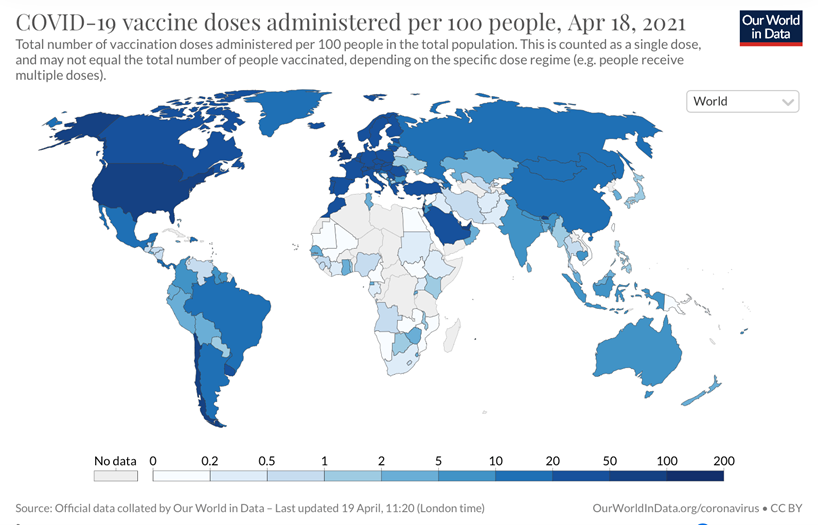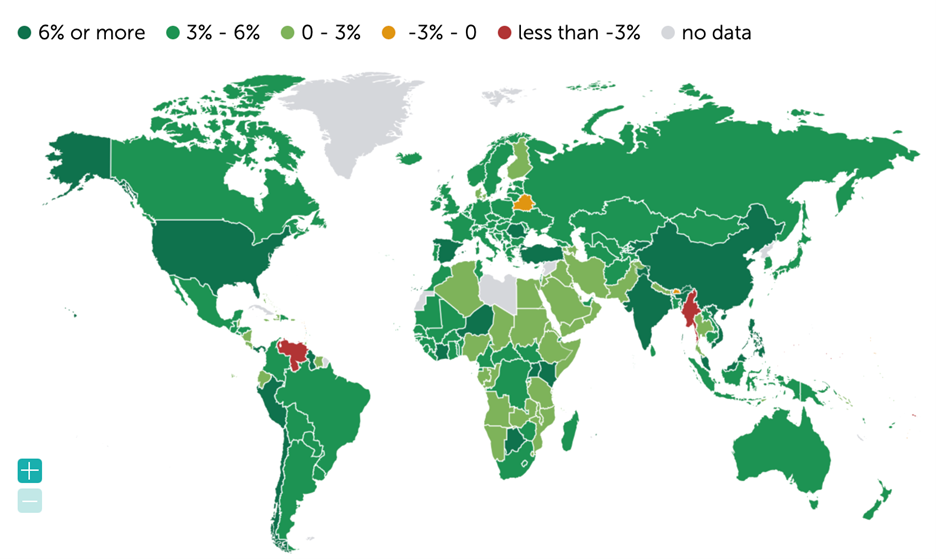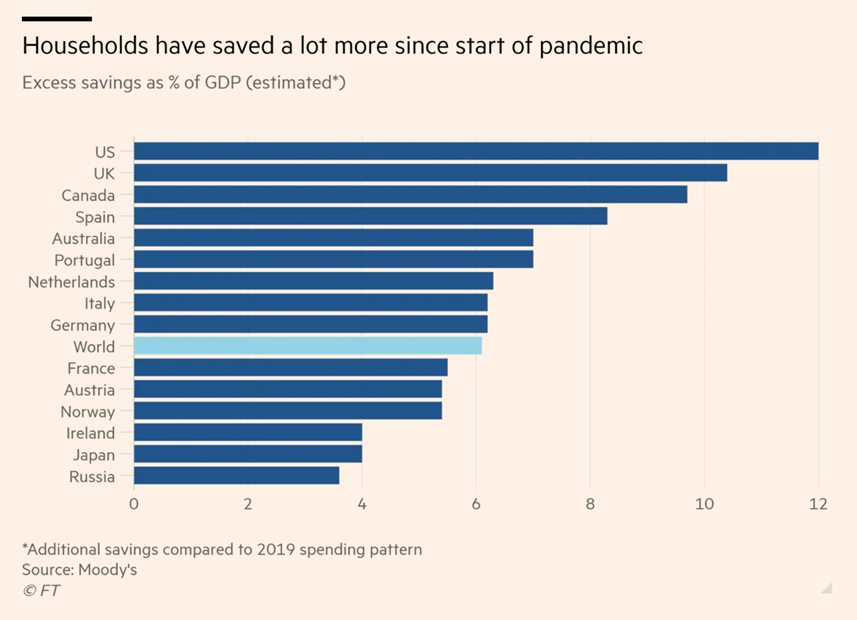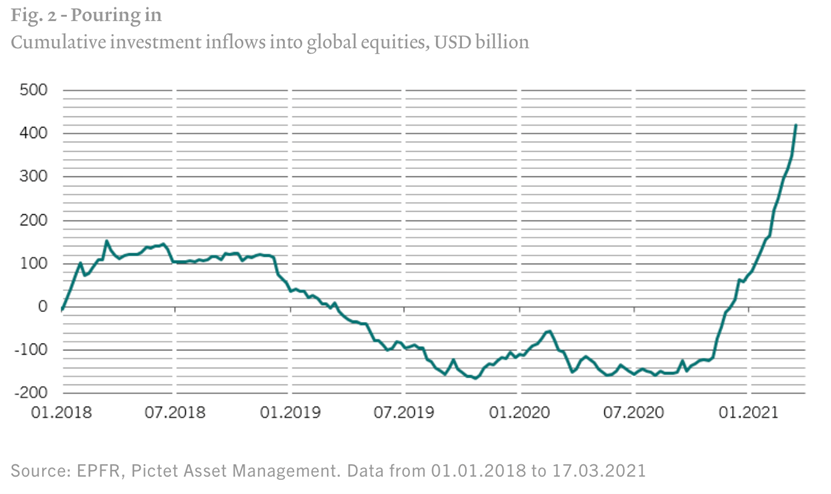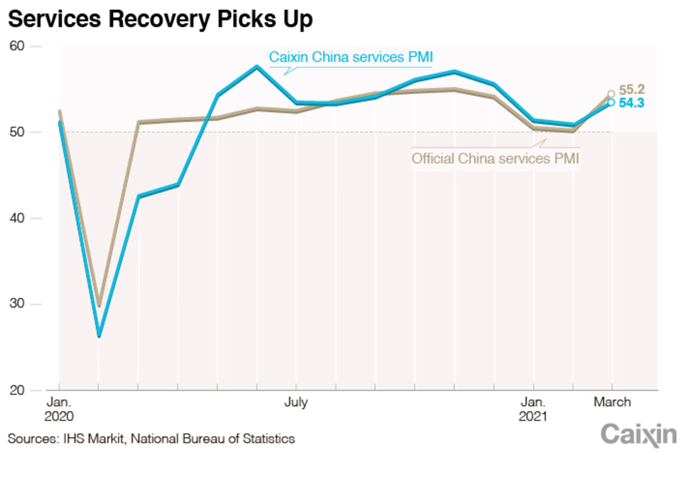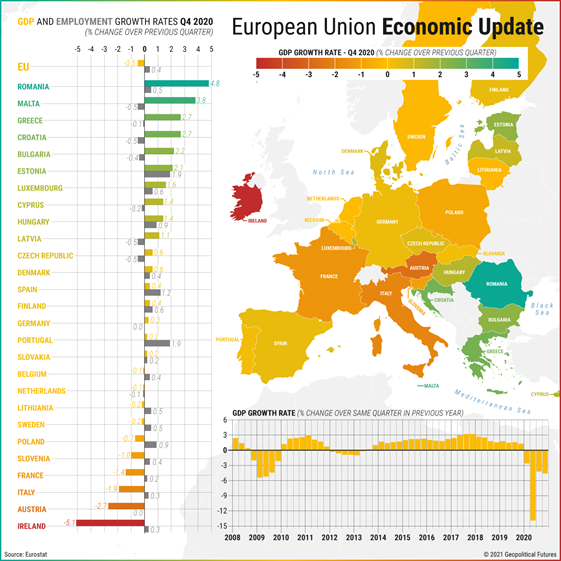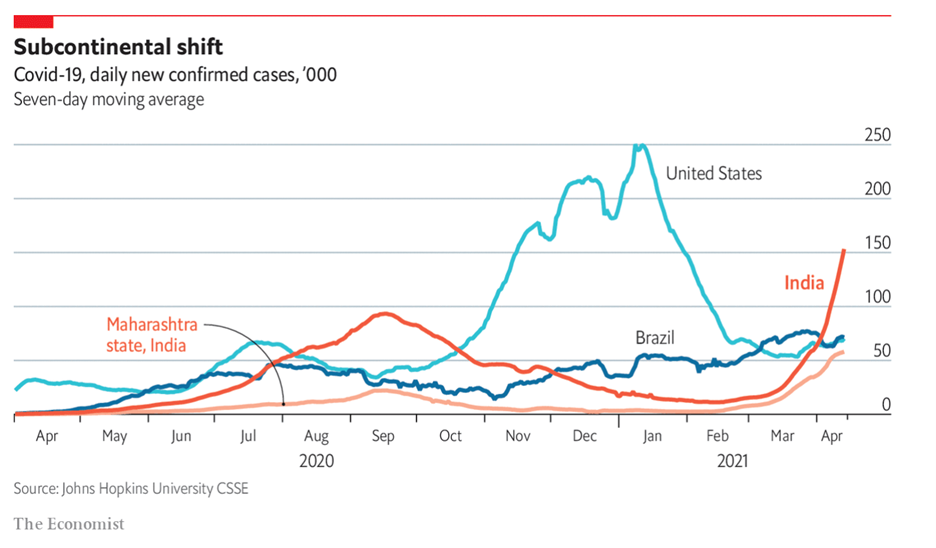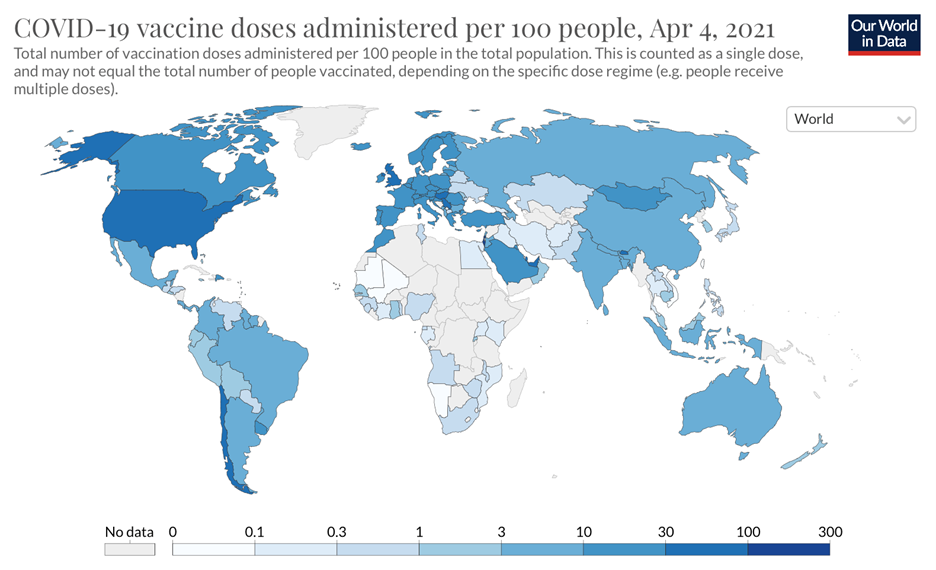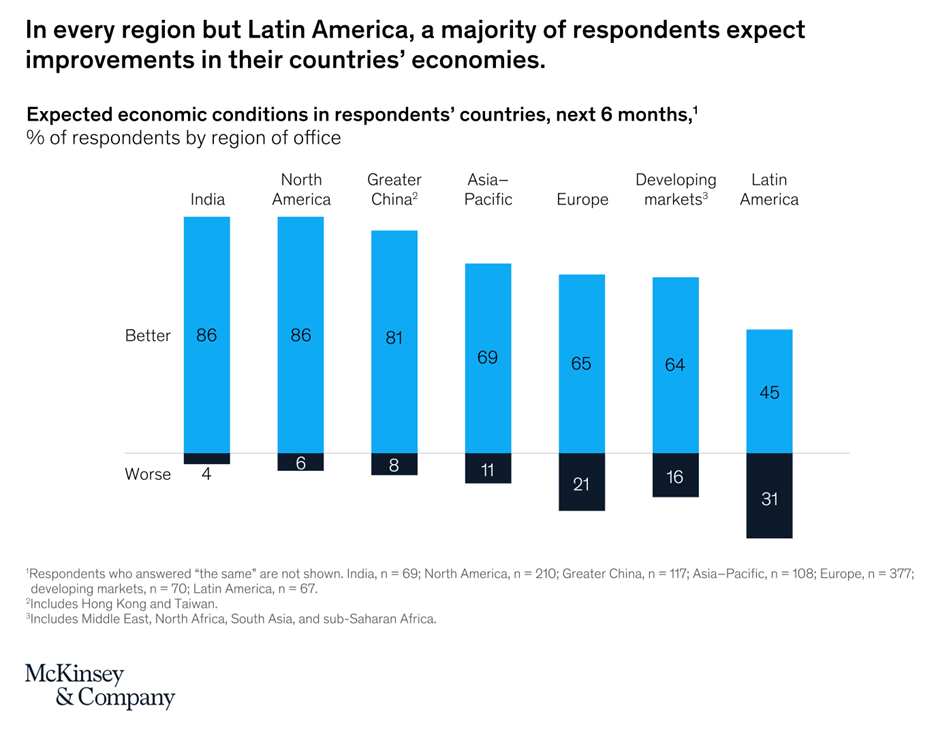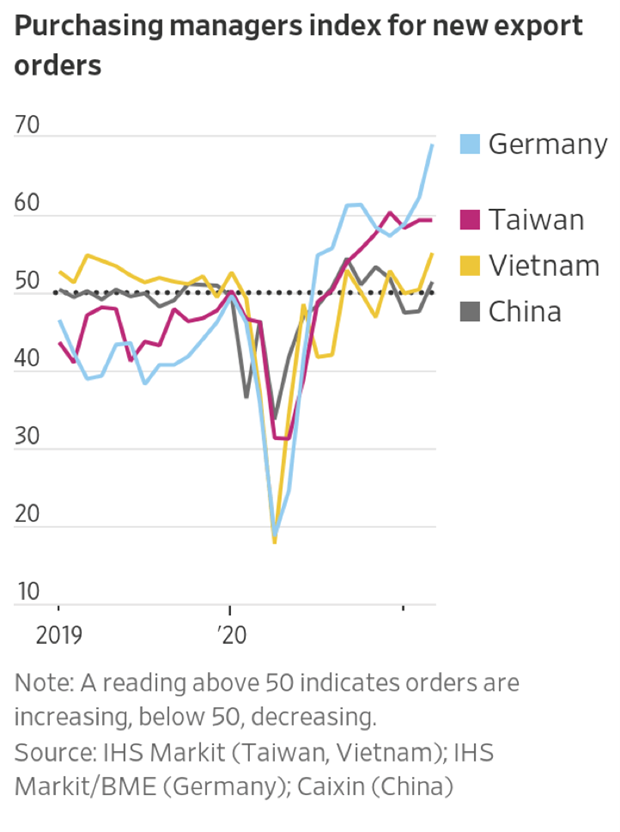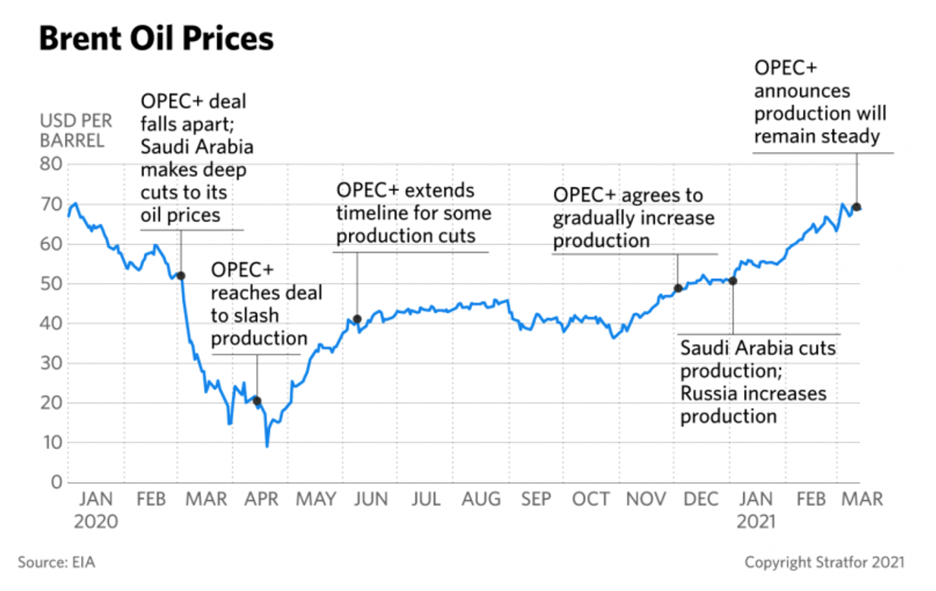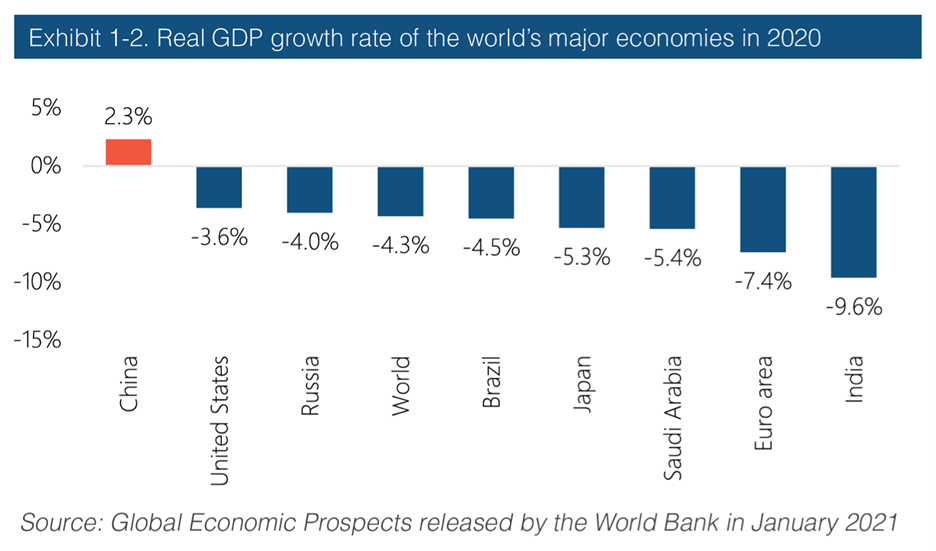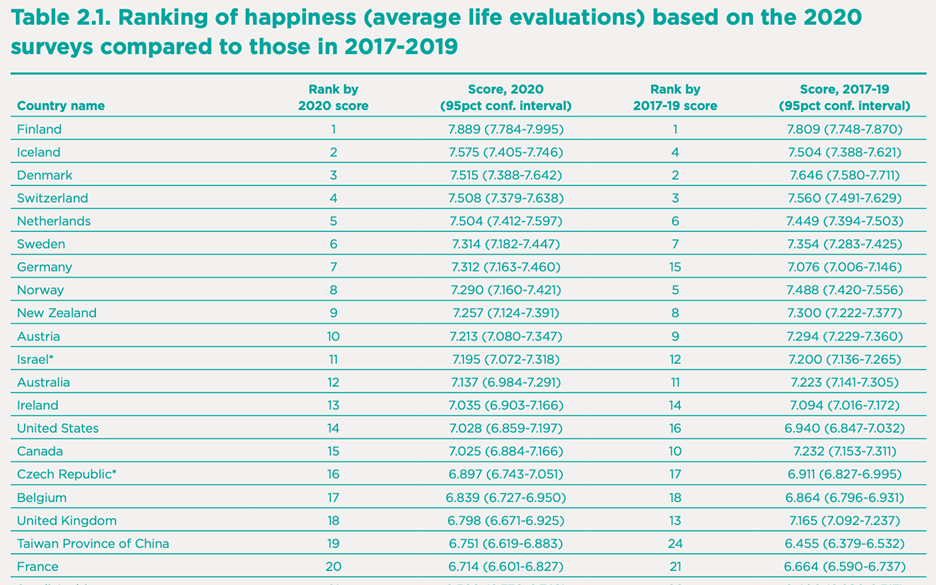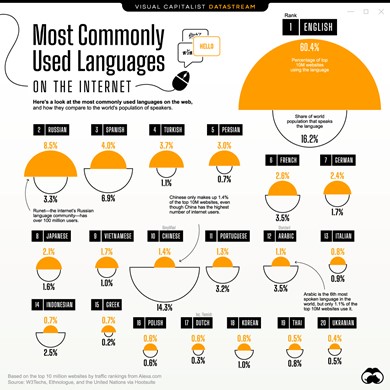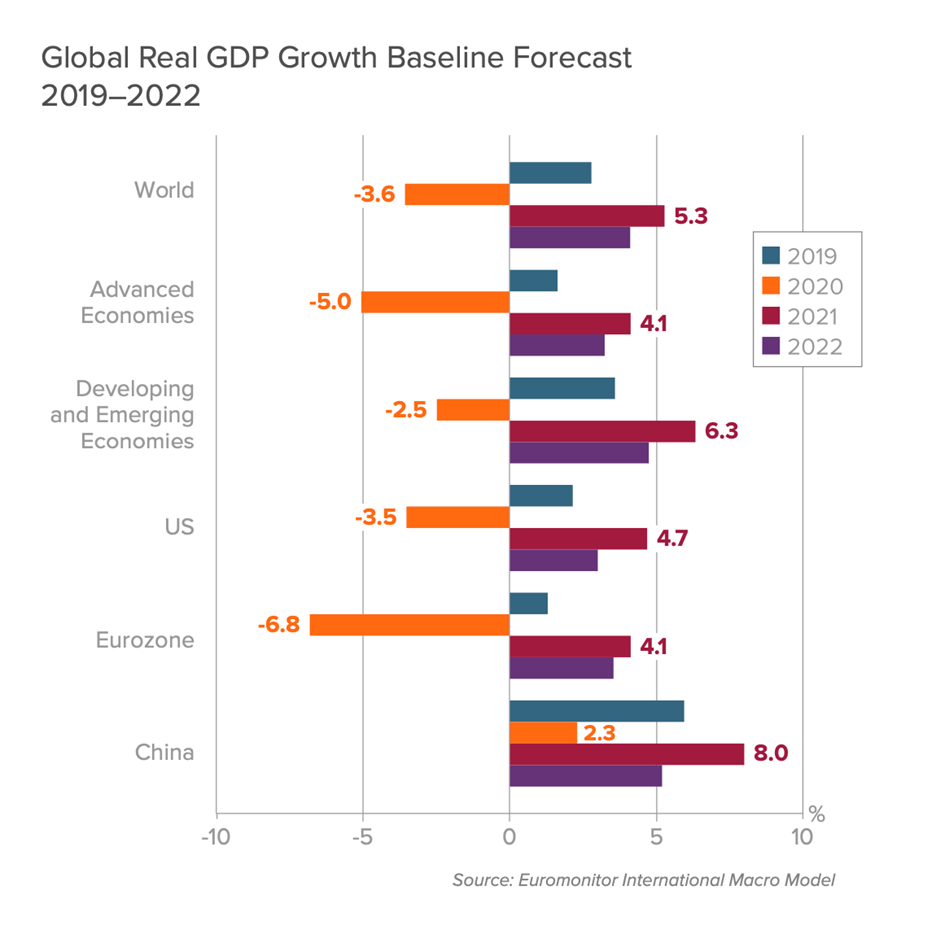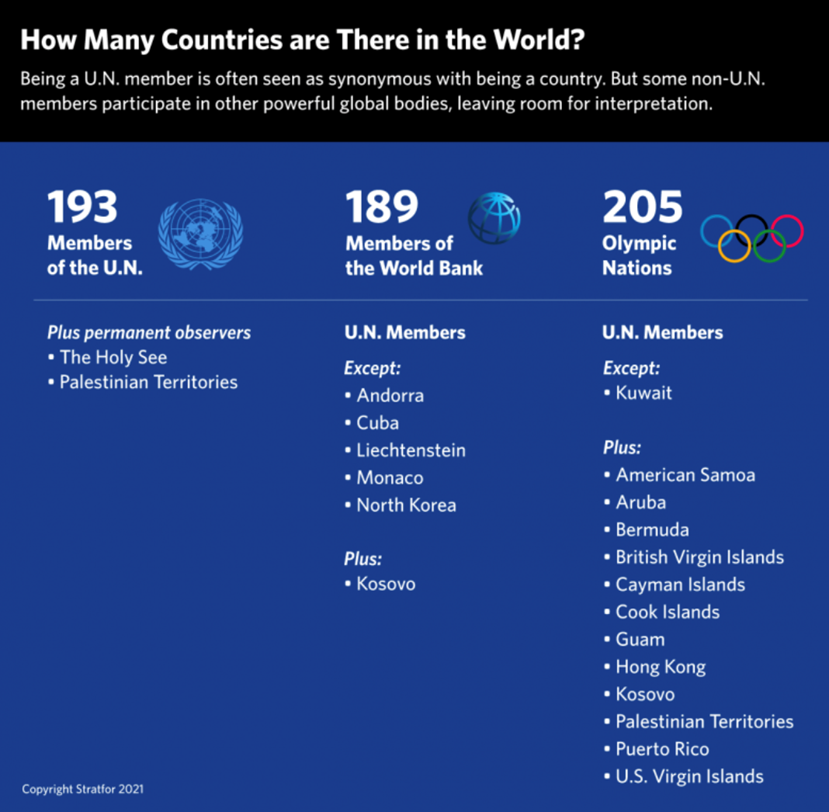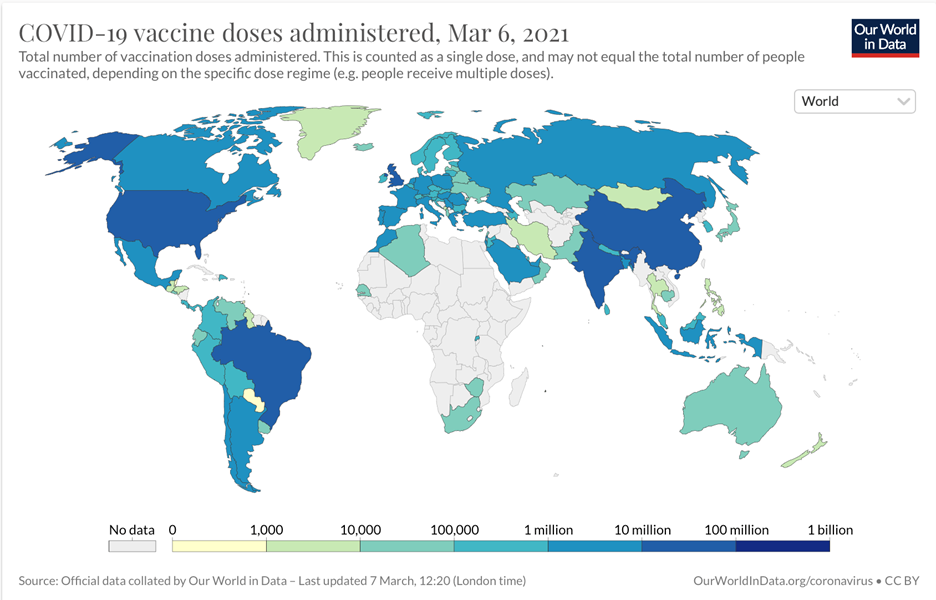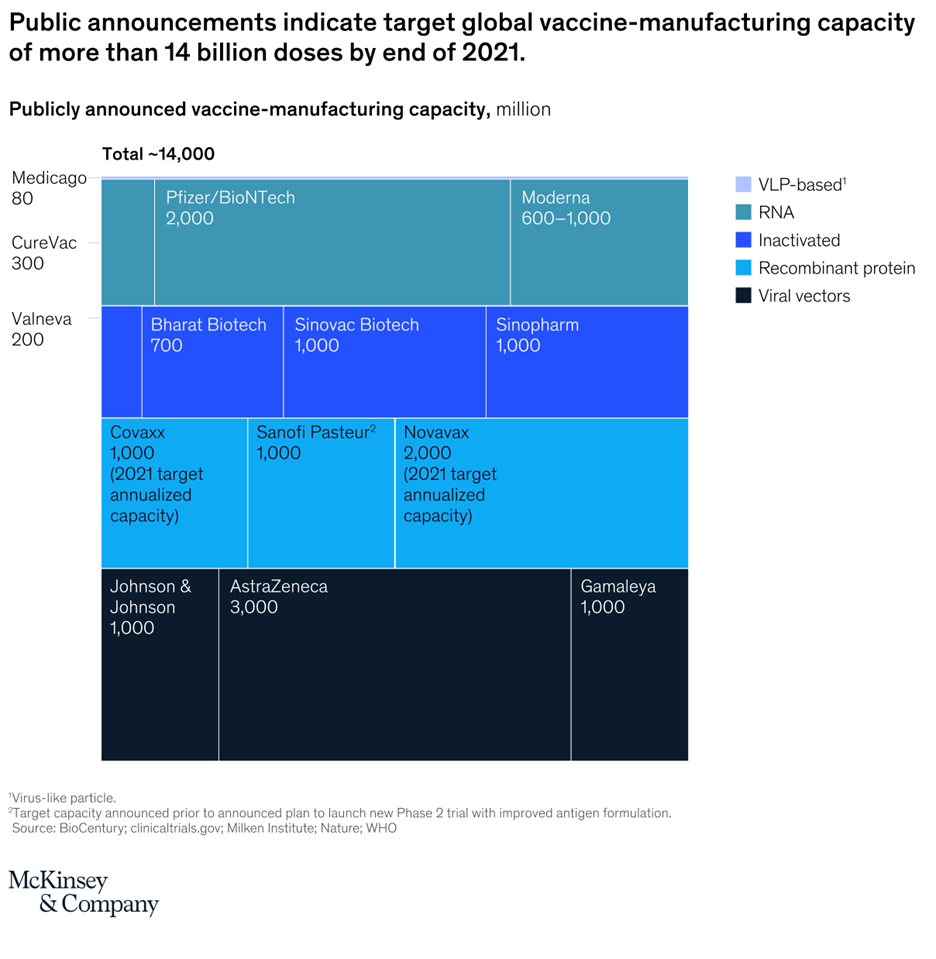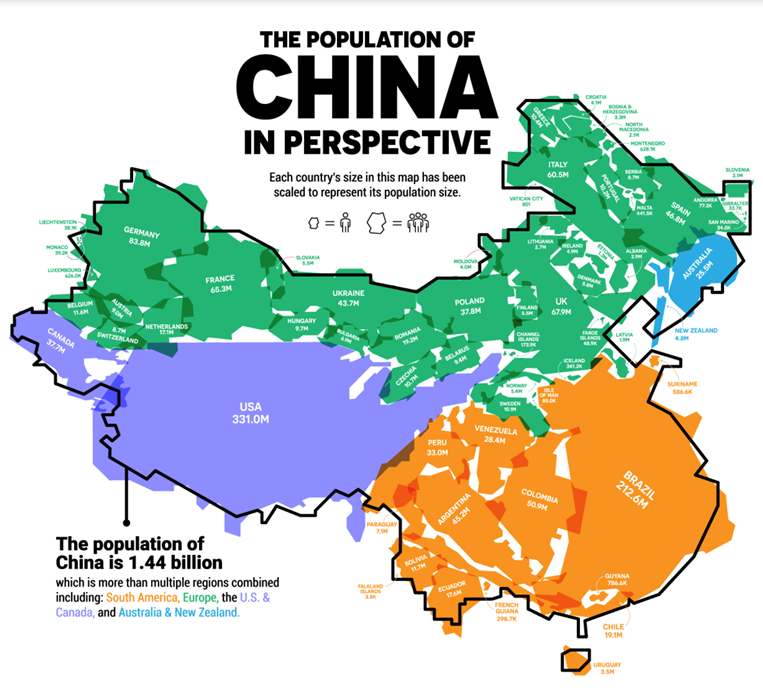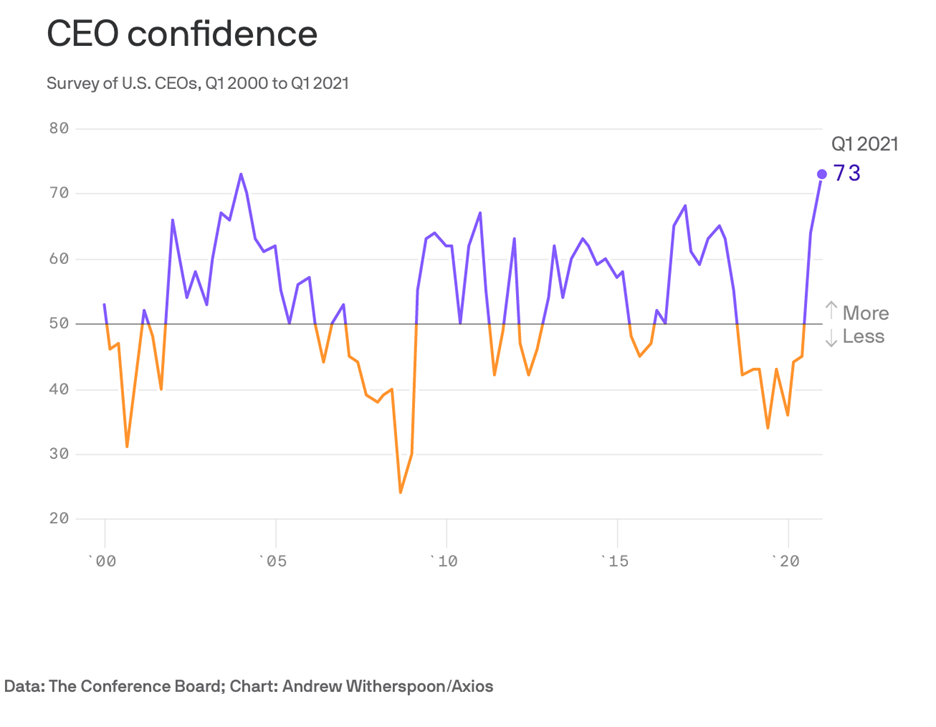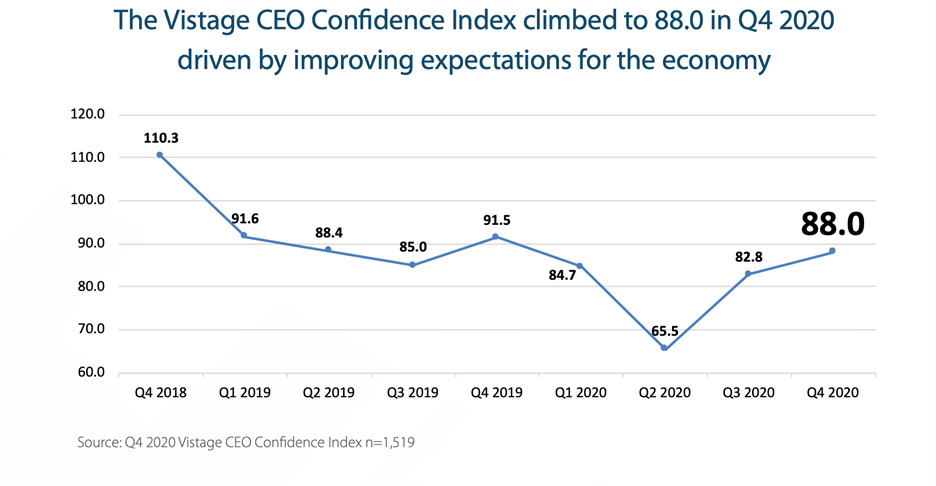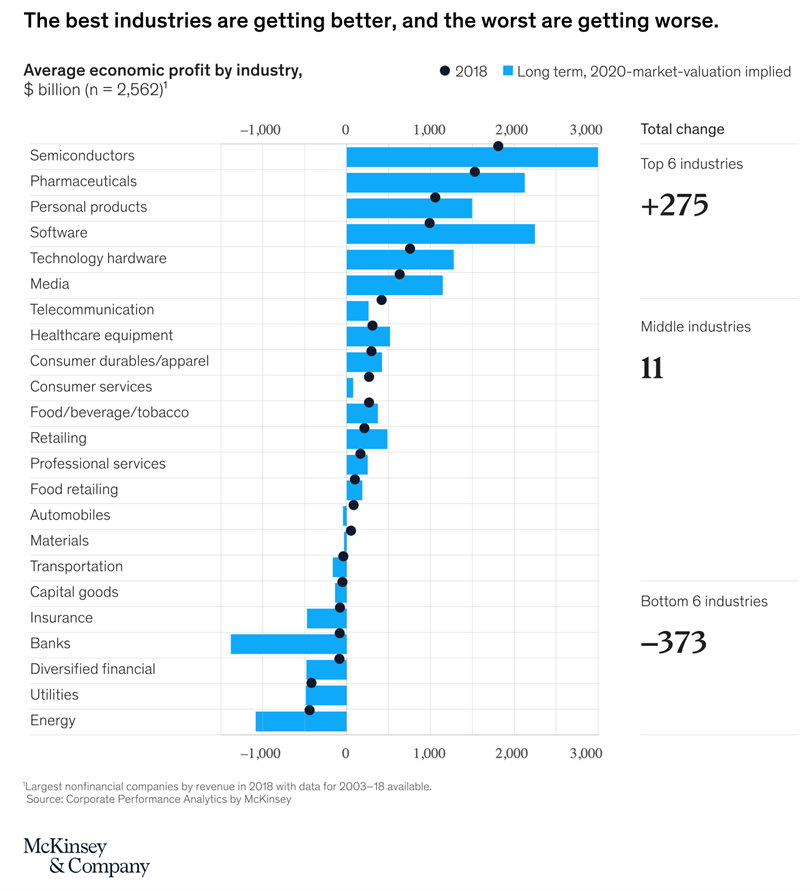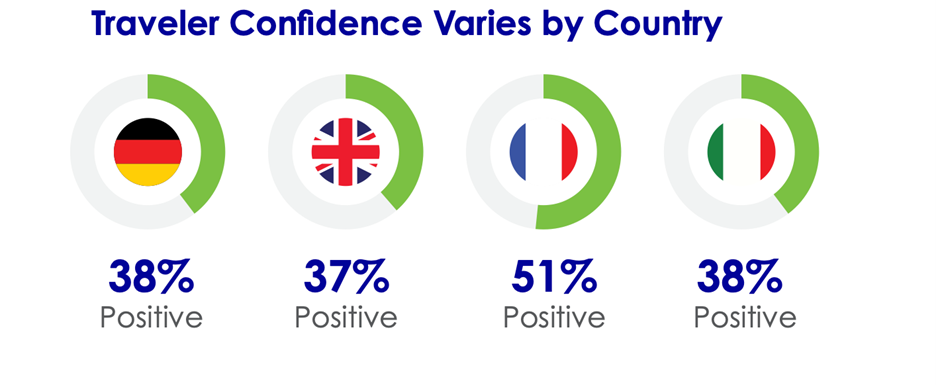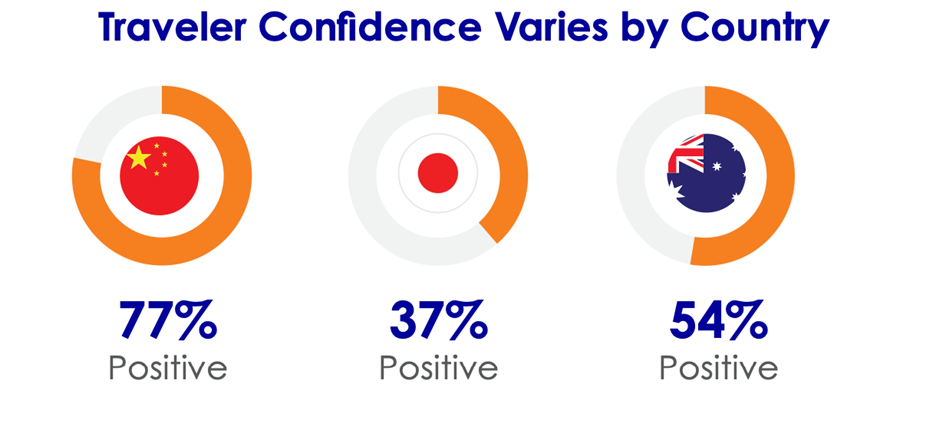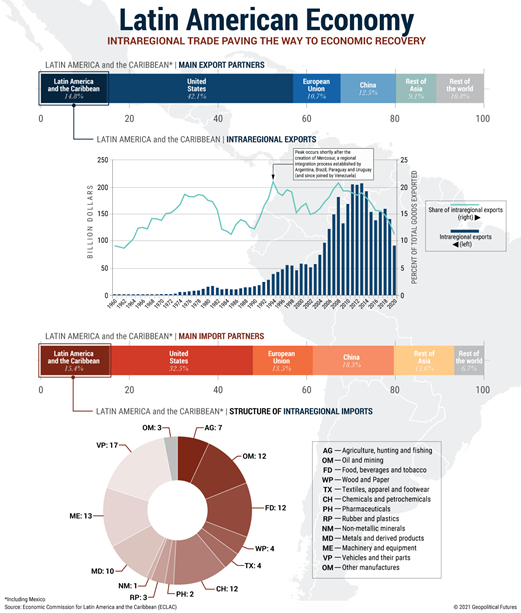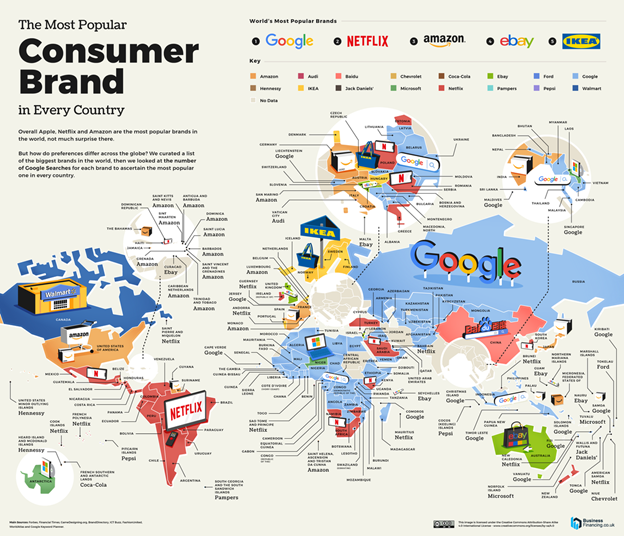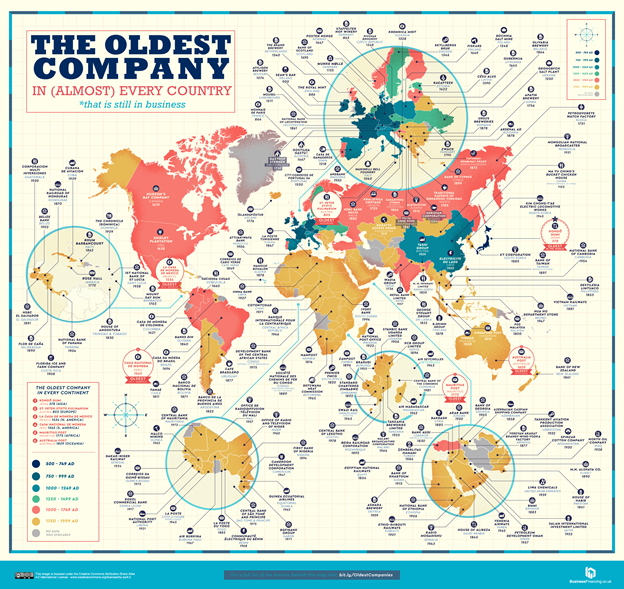EGS Biweekly Global Business Newsletter Issue 28, Monday, April 19, 2021
By William (Bill) Edwards, CEO of Edwards Global Services, Inc. (EGS)
““No one is perfect – that’s why pencils have erasers.”, Wolfgang Riebe, Keynote Speaker/Magician
““Optimism is a happiness magnet. If you stay positive good things and good people will be drawn to you.”, Mary Lou Retton, Olympic Gold Medal Gymnast
“You will either step forward into growth or you will step back into safety”, Abraham Maslow
Introduction
Our biweekly newsletter focuses on what is happening around the worldthat impacts new trends, health, consumer spending, business investment and travel.
Highlights in issue #28:
- Lots of international airline announcements in the Global and Regional Travel Updates section below
Our Information Sources
We daily monitor 30+ countries, 40+ international information sources and six business sectors to keep up with what is going on in this ever-changing environment. Our GlobalTeam™ on the ground covers 43 countries and provides us with updates about what is happening in their specific countries.
Please feel free to send us your input and sources of information. Our contact information is at the bottom of this newsletter.
First, a few Personal Comments
According to Bloomberg, as of April 18th more than 894 million (vaccine) doses have been administered across 155 countries. The latest rate was roughly 16.6 million doses a day. Still too low in the European Union and some parts of the Asia Pacific region. Airlines are increasing northern hemisphere summer schedules. The U.S. and United Kingdom are reopening businesses and consumers are spending. Global savers stockpiled US$5.4 trillion during COVID and are ready to spend.
The International Monetary Fund sees global GDP growth this year at over 6%. While the trends are in the right direction, faster vaccine distribution over the next few months is the key to business coming back in 2021.
Global Vaccine Update
“This map shows the number of COVID-19 vaccination doses administered per 100 people within a given population. Note that this is counted as a single dose, and may not equal the total number of people vaccinated, depending on the specific dose regime as several available COVID vaccines require multiple doses.”, Our World in Data, April 18, 2021
“99.992% of fully vaccinated people have dodged COVID, CDC data shows. No vaccine is 100% effective. But the COVID vaccines seem pretty darn good. The numbers suggest that breakthroughs occur at the teeny rate of less than 0.008 percent of fully vaccinated people—and that over 99.992 percent of those vaccinated have not contracted a SARS-CoV-2 infection.”, ARS Technica, April 15, 2021
Interesting Data and Studies
“Ramadan begins around the world amid Covid restrictions. Millions of Muslims are celebrating the start of Ramadan, a festival that includes a month of fasting and prayer. As Ramadan begins on 13 April, some Muslim communities will find their traditional practises affected by restrictions to stop the spread of coronavirus.”, BBC News, April 13, 2021
“Global growth is projected at 6% in 2021, moderating to 4.4% in 2022. The projections for 2021 and 2022 are stronger than in the October 2020 WEO. The upward revision reflects additional fiscal support in a few large economies, the anticipated vaccine-powered recovery in the second half of 2021, and continued adaptation of economic activity to subdued mobility.” International Monetary Fund, March 23, 2021
“WTO revises global trade forecast higher, as stimulus keeps demand intact and China dominates exports. Global merchandise trade is expected to rise by 8 per cent this year. WTO officials warn that the lopsided distribution of vaccines globally presents the biggest risk to a full recovery in global trade.”, South China Morning Post, March 31, 2021
“Global savers’ $5.4tn stockpile offers hope for post-Covid spending. Households amass extra cash equivalent to 6% of world output since pandemic began. Consumers around the world have stockpiled an extra $5.4tn of savings since the coronavirus pandemic began and are becoming increasingly confident about the economic outlook, paving the way for a strong rebound in spending as businesses reopen.
“BAROMETER OF FINANCIAL MARKETS MARCH INVESTMENT OUTLOOK: Let the rally continue. Ample monetary and fiscal stimulus should provide a strong boost to the economy and corporate profits. Which is why we continue to favour cyclical stocks.”, Pictet Asset Management, April 2021
Global and Regional Travel Updates
“Hopes rise for Britain’s summer getaway season. Hopes that the great British getaway would be possible this summer grew on Wednesday, with easyJet (EZJ.L) predicting that most of Europe would be open for travel and British Airways confident on routes to the U.S., despite ongoing uncertainty. Europe’s travel industry, battered by the pandemic, is counting on British holidaymakers to lead a tourism rebound this summer. After one of the world’s fastest vaccination programmes, Britons could be permitted to travel from late May.”, Reuters, April 14, 2021
“Etihad Airways Launches Historic Service From Abu Dhabi To Israel. Etihad Airways, the national airline of the United Arab Emirates, has launched a twice-weekly regular service between Abu Dhabi (AUH) and Tel Aviv (TLV), marking the latest development in the warming relations between the two nations. The Abu Dhabi/Israel flights reflect ‘the growing cooperation between the two nations following the establishment of diplomatic, trade and tourism ties,’ according to an Etihad press release.”, Forbes, April 7, 2021
“Mexican Carriers Start April with Good News. Although Latin America is going through a difficult time due to new outbreaks of COVID-19, positive news has come out in Mexico regarding the development and recovery of its airline sector. Viva Aerobus, Mexico’s ultra-low-cost airline, surpassed one million passengers in March 2021, a growth of 67.7% compared to last February.”, Airline Geeks, April 10, 2021
“Qantas Airways Airbus A380 Fleet Returning to the Skies. ‘All of the A380s, we believe, will be reactivated. QF CEO Alan Joyce said at a CAPA Live virtual conference on Wednesday that the airline had invested a lot of money on them. ‘They’ll be good aircraft once demand is there.’”, Airways Magazine, April 14, 2021
“Airlines are ‘run off their feet’ as thousands of Australians book flights back to New Zealand after travel bubble announcement – but one carrier refuses to take to the skies. Airlines have added hundreds of services between Australia and New Zealand. Qantas, Jetstar and Air New Zealand are among the airlines offering services. But Virgin Australia will not offer flights across to New Zealand before October
“France Set To Ban Short Domestic Flights in Favor of Train Travel. In a dramatic plan to cut airline emissions and help the environment, France is set to ban short domestic flights in favor of train travel if the trip can be taken in two-and-a-half hours or less.”, Travel Pulse, April 13, 2021
“Heathrow warns travelers to brace for up to 6-hour queues. Travelers are already stuck in queues for COVID-19 testing that are several hours long at the moment, and airport officials describe the situation as “untenable.” According to The Times, wait times are “well in excess of two hours and up to six,” and are expected to get worse.”, The Points Guy, April 15, 2021
“Israel to reopen to fully vaccinated tourists from May 23. As of May 23, limited numbers of fully vaccinated tourists will be allowed to enter Israel on a leisure basis in groups. Once the borders have reopened to vaccinated travelers, it will be the first time in more than a year that Israel has reopened to non-citizens. Following an extremely successful vaccination program to date, Israel is ready to welcome back tourists who have been fully vaccinated from COVID-19 this summer.”, The Points Guys, April 13, 2021
“Australia considers staggered reopening of borders. Australia will consider a staggered reopening of its international borders to allow residents who are fully vaccinated against COVID-19 to travel abroad first, Prime Minister Scott Morrison said on Thursday. Australian citizens and permanent residents cannot leave the country due to coronavirus restrictions unless they have an exemption, while returning international travelers have to quarantine in hotels for two weeks at their own expense.”, Reuters, April 15, 2021
“Greece accelerates reopening, plans to welcome tourists back from next week. A Greek official said on Wednesday that the country will reopen to fully vaccinated travelers coming from the United States from next week. Additionally, Americans who have received a negative COVID-19 test will be permitted to enter.”, The Points Guy, April 14, 2021
“Business Travel Is Dead, Long Live Business Travel. It’s unclear whether business travel will make a full comeback to pre-pandemic levels, but two things have happened. First, the past year has permanently changed the way companies think about business travel and how they’ll approach it in the future. Second, technology has a huge role to play not only as a substitute for travel, but as a catalyst for regrowth in the travel industry itself.”, Forbes, April 1, 2021
“China ‘could start easing international travel restrictions by next spring’ if it hits coronavirus vaccination targets. The country aims to inoculate at least 70 per cent of its population by then, which would allow China to start negotiating an end to border restrictions. But Zhang Wenhong, head of Shanghai’s Covid-19 team, warns that it risks falling behind other major economies if take-up rates stay low.”, South China Morning Post, April 6, 2021
Country & Regional Updates
Australia
“Most Australian workers don’t want to return to offices after Covid and businesses say they likely never will – as work-from-home increases productivity. Just 17 per cent of professionals want to come back to the office permanently.”, The London Daily Mail, April 12, 2021
“The Federal government has expanded its guaranteed recovery loan scheme to include SME’s that are eligible flood-affected businesses, according to a government statement. Eligible businesses, including self-employed individuals and non-profit businesses, must have received JobKeeper payments between January 4 and March 28, and/or be located or operating in eligible Local Government Areas (LGAs) impacted by the March floods. Secured and unsecured loans of up to $5 million are available through participating commercial lenders and interest rates are flexible but capped at 7.5%. Loans can be used to support investment and re-finance pre-existing debt, among other things. Loans will be available from 1 April to 31 December 2021.”, Franchise News newsletter, April 15, 2021, Jason Gehrke, Managing Director, the Franchise Advisory Centre, Brisbane
“Australia flags mass inoculation amid COVID-19 vaccine turmoil. The federal government and states will discuss setting up mass vaccination centres from as early as June for people above 50, Prime Minister Scott Morrison said on Wednesday, when the country would have moved to its next immunisation phase.”, Reuters, April 13, 2021
Brazil
“Brazil ‘back to business’ in 2-3 months as vaccinations accelerate, economy minister says. ‘We think that probably two, three months from now Brazil could be back to business. Of course, probably economic activity will take a drop but it will be much, much less than the drop we suffered last year … and much, much shorter,’ (Brazilian Economy Minister Paulo) Guedes said. To achieve that, Brazil must speed up mass vaccination, which Guedes hailed as the country’s most important fiscal policy right now.”, Reuters, April 6, 2021
China
“Chinese Economy Grew More Than 18% in First Quarter. The year-over-year GDP growth rate will almost certainly trend lower in coming quarters. The rate of gross domestic product growth in the first three months of 2021 was sharply higher than the 6.5% year-over-year growth recorded in the final quarter of 2020, though it fell short of the 19.2% growth expected by economists polled by The Wall Street Journal.”, The Wall Street Journal, April 16, 2021
“China factory gate prices rise by most in nearly 3 years as economic recovery quickens. China’s producer price index (PPI) rose 4.4% in annual terms, the National Bureau of Statistics (NBS) said in a statement, far above a 3.5% rise forecast in a Reuters poll and up sharply from a 1.7% increase in February.”, Reuters, April 8, 2021
“China’s imports from US set record in first quarter, but their trade imbalance grows on strong Chinese exports. Analysts tie China’s broader import rise to higher global commodity prices and stronger domestic demand, particularly in construction sector. China’s overall export growth stayed high in first quarter and ‘may now be peaking’, analyst says, as policy support is removed and vaccine roll-outs start to reverse pandemic-induced demand for Chinese goods.”, South China Morning Post, April 13, 2021
“China Services Expansion Hits Three-Month High, Caixin PMI Shows. The Caixin China General Services Business Activity Index, which gives an independent snapshot of operating conditions in the services sector, rose to 54.3 in March from 51.5 the previous month.”, Caixin Global, April 6, 2021
Czech Republic
“Czechs start to ease lockdown, youngest kids back to schools. The Czech Republic has taken its first steps toward easing a tight lockdown. As the coronavirus pandemic eases up in the Czech Republic, one of the European Union’s hardest-hit countries took its first steps on Monday toward easing of its tight lockdown.”, ABC News, April 12, 2021
European Union
“Europe’s pandemic-stricken economy could return to pre-crisis levels next year, IMF says. European countries have been forced to introduce new restrictions or toughen previous public health measures in recent weeks as Covid infections have surged. There’s uncertainty over how the pandemic will evolve, particularly when it comes to potential new variants and the speed of the vaccination rollout. The IMF said it expected to see high prices in the continent throughout 2021.”, CNBC, April 14, 2021
“In its response to the COVID-19 pandemic, the European Union has had some ups and lots of downs – particularly when it comes to vaccine acquisition and distribution. Use of one of the leading vaccines, developed by Oxford University and AstraZeneca, was temporarily suspended and/or restricted over potential health risks, leading some European countries to seek alternatives in Russia or China.”, Geopolitical Futures, April 9, 2021
India
“India is facing a sudden spike in covid-19 cases. Hit with a second wave of infections, the country has become the new coronavirus hotspot. On March 1st, the number of new cases reported was around 12,000. By April 1st it was more than 80,000. On April 13th, it was about 185,000.”, The Economist, April 14, 2021
Singapore
“‘People say they feel safer’ – Singapore now has one-third of global cruise travellers. To date, more than 120,000 residents of Singapore have taken a cruise, and sailings have now been extended until October. The city-state, which contains a population of 5.7 million on an island smaller than New York City, was able to achieve what it has because of its robust health safety framework, Singapore Tourism Board Chief Executive Officer Keith Tan said at a conference.”, The Independent of Dublin, April 18, 2021
“Singapore posts surprise economic growth in first quarter, with GDP expanding 0.2 per cent year on year. The growth was driven by manufacturing, which expanded 7.5 per cent year on year, as well as electronics, precision engineering, chemicals and biomedical sectors.”, South China Morning Post, April 14, 2021
United Arab Emirates
“Rescheduled Dubai Expo hopes to attract 25 million visits. Held every five years, expos see hundreds of countries using pavilions to show off the latest in architecture and technology. Before the pandemic forced the event to be postponed, organisers had expected 25 million visits during the course of the six-month international fair. It will now run from 1 October to 31 March 2022.”, BBC News, April 11, 2021
United Kingdom
“COVID-19: Zoos, pools, theme parks and restaurants on the menu as England’s restrictions ease. Non-essential shops, hairdressers, gyms and outdoor hospitality can be enjoyed again from today. It’s the day millions have been waiting for as coronavirus lockdown restrictions are eased in England.”, SKY News, April 13, 2021
“WH Smith is going places … as long as we’re cleared for take-off……RBC picked WH Smith, the retailer, as a prime beneficiary of the “strong pent-up demand for travel” once the pandemic has passed. “We think WH Smith’s major international markets are providing an encouraging precedent for a recovery in UK travel demand and we expect its relative position to strengthen post the pandemic,” Richard Chamberlain, its retail analyst, said.”, The London Sunday Times, April 17, 2021
“Here’s What Happened in the London Restaurant World This Week…Restaurants, pubs, cafes, and bars reopened outdoors. On Monday 12 April, restaurants, pubs, cafes and bars reopened for outdoor dining — subject to social distancing and the “rule of six” household mixing rules — after their third coronavirus lockdown. In the first week of gardens, terraces, and tables on streets, here’s how it went.”, Eater London, April 16, 2021
“Builders full of joys of spring but prices rise. The March purchasing managers’ index for construction easily beat expectations, jumping to 61.7 from 53.3 in February, its highest reading since September 2014 and above forecasts for 54.6. Readings above 50 indicate growth. Every sector of the industry enjoyed robust growth.”, The Times of London, April 9, 2021
United States
“Disneyland fans waiting hours online for a chance to buy a theme park ticket. Californians trying to get tickets to visit the Happiest Place on Earth after a year-long pandemic shutdown found themselves waiting in line — online — just to get a chance to enter the theme park, where waiting in line is part of the Disney experience.”, San Francisco Chronicle, April 15, 2021
“Small Business Job Openings At Record Level Says New Study. The NFIB’s latest monthly jobs report found 42% of small business owners had job openings they could not fill in the current period – a record reading. The result is based on data from March, and is 20 points higher than the 48-year historical average of 22%. ‘Where small businesses do have open positions, labor quality remains a significant problem for owners nationwide,’ said NFIB Chief Economist Bill Dunkelberg. ‘Small business owners are raising compensation to attract the right employees.’”, Franchising.com, April 12, 2021
“Small Businesses’ Uneven Recovery. A year into the pandemic, owners are still struggling as signs of hope emerge. Because of safety measures to contain the spread of Covid-19, many businesses that depend on gathering people in a physical space, such as gyms, hotels, nail salons, movie theaters, and restaurants, have struggled. Meanwhile, many that don’t depend on people spending time in their space have flourished.”, Bloomberg Businessweek, April 16, 2021
Brand News
“Chicken Sandwiches Take On The World: In the last year, a staggering number of fried chicken sandwiches have made their debut at chain restaurants in the U.S. But it looks like operators around the world are also feeding the craving, according to Technomic’s Global Foodservice Navigator Program. The program’s Spring 2021 report showcases no fewer than eight riffs of the ubiquitous fried chicken sandwich on chain menus in other countries.”, Restaurant Business, April 9, 2021
“Carl’s Jr. Los Angeles Store to Offer All Plant-Based Menu on Earth Day. ‘We are excited to give our fans a fun, delicious way to celebrate Earth Day this year with a full plant-based meat experience at Carl’s Jr.,’ says Patty Trevino, senior vice president of brand marketing at CKE Restaurants. ‘With nearly one-third of consumers identifying as flexitarian, we continue to innovate on new ways for our guests to enjoy our iconic charbroiled burgers with our Beyond Meat partnership.’”, QSR Magazine, April 15, 2021
“Duck Donuts sold to NewSpring Capital affiliate and Betsy Hamm is promoted to CEO. Founder Russ DiGilio, who founded Duck Donuts in 2007 in the town of Duck, N.C., on the state’s Outer Banks, and started franchising in 2013, remains a “significant owner” of the concept and will be a member of the chain’s newly formed board of directors.”, Nation’s Restaurant News, April 13, 2021
“Chick-fil-A tests robot delivery in Southern California. The quick-service chain has partnered with semi-autonomous robot company Kiwibot for robotic deliveries in Santa Monica. Los Angeles-based Kiwibot will be serving Chick-fil-A customers in Santa Monica with the newest version of its robots, which are semi-autonomous — humans operate them remotely, but the rovers are equipped to complete some commands on their own.”, Nation’s Restaurant News, April 15, 2021
“McDonald’s to hire 25,000 staff in Texas this month. Last year, McDonald’s hired around 260,000 restaurant staff in the United States when stores reopened for diners after serving them through delivery, drive-thru and takeaway for weeks due to the COVID-19 pandemic.”, Reuters, April 8, 2021
“StretchLab Signs Master Franchise Agreement for at Least 50 Studios in Australia. The first studio is expected to open in mid-2021 in Perth. StretchLab is one of nine brands owned by U.S. franchisor Xponential Fitness, a curator of leading boutique fitness brands with more than 1,750 studios open worldwide.”, Franchising.com, April 16, 2021
Articles About Doing Business Going Forward
“Digital Transformation in Global Franchising. As we look ahead to a new world of global business, digital business transformation has accelerated and become the way companies will be successful in 2021 and beyond. Franchisors have increased brand innovation and operational efficiency to meet changing customer expectations, reduced product and service costs, made supply chain changes and improved product and service quality.”, Franchising.com, April 2021
“Brave New World of Consumer Marketing Opportunities Dawns as Covid-19 Subsides. Delivery is now a way of life. Businesses will offer people more ways to connect and socialize. Use technology to sell to customers in new ways.”, Franchising.com, April 14, 2021
“The pros and cons of working remotely. Gartner’s recent survey finds that about 70% of employees wish to continue some form of remote work. Twitter and Facebook have already given their employees permission to work remotely on a permanent basis. On the other hand, Goldman Sachs CEO David Solomon calls remote work an “aberration,” urging employees to return to the office to collaborate on ideas.”, Fortune, April 17, 2020
“A new study suggests that “Zoom fatigue” is worse for women than men. The condition will remain a feature of work life, even after employees return to the office. Having endured endless virtual meetings over the past year, many workers are unsurprisingly complaining about “Zoom fatigue”. Videoconferencing can be exhausting.”, The Economist, April 17, 2021
“Senior Care Around the World: Innovation and Bright Ideas from Countries Across the Globe. As the United States grapples with the realities of its large and aging Baby Boom generation, other countries are experiencing similar demographic trends. China, for instance, will have an over-65 population of roughly 500 million people by 2050. The worldwide preponderance of seniors is causing many countries to reassess how they pay for care, manage the needs of those afflicted with dementia, prevent isolation and otherwise show compassion to those who have worked hard throughout their lives and now need support”, Arosa, April 18, 2021
“The post-pandemic office dilemma: Who returns and who works from home? Organizations must decide what happens to the pre-pandemic perks—the gyms, game rooms, and other amenities that defined daily office culture. As we look back on nearly a year of work-from-home data, the results have been overwhelmingly positive—with most remote employees proving to be more productive, while also enjoying the flexibility that can come from a remote setup.”, Fast Company, January 28, 2021
We accelerate global development for our Clients
Edwards Global Services, Inc. (EGS) provides a complete International solution for companies Going Global. From initial global market research and country prioritization, to developing new international markets, providing in-country operations support and problem solving around the world. Our U.S. based executive team has experience living and working in many countries. Our Associate network on the ground overseas covers 40+ countries.
Edwards Global Services, Inc. (EGS) has twice received the U.S. President’s Award for Export Excellence.
Find out more about how we help companies Going Global successfully at:
Download our latest 40 country ranking chart at this link:

William (Bill) Edwards, CFE, is CEO and Global Advisor of Edwards Global Services (EGS). He has 46 years of international operations, development, executive and entrepreneurial experience and has lived in 7 countries. With experience in the franchise, oil and gas, information technology and management consulting sectors, he has directed projects on-site in Alaska, Asia, Europe and the Middle and Near East. Mr. Edwards advises a wide range of companies on early to long term global development of their brands.
For truly global market research, operations and development support across 40 countries, contact Mr. Edwards at bedwards@edwardsglobal.com or +1 949 224 3896.
https://calendly.com/geowizard/30min Click here to schedule a call with Bill Edwards to discuss how to succeed in developing your company around the world.
EGS Biweekly Global Business Newsletter Issue 27, Monday, April 5, 2021
By William (Bill) Edwards, CEO of Edwards Global Services, Inc. (EGS)
“Success is the sum of small efforts repeated day in and day out”, Robert Collier
“If I had nine hours to chop down a tree, I’d spend the first six sharpening my axe.”, Abraham Lincoln
“Intelligence is the ability to adapt to change.”, Stephen Hawking
Introduction
Our biweekly newsletter focuses on what is happening around the world that impacts new trends, health, consumer spending, business investment and travel.
Highlights in issue #27:
- McKinsey’s latest survey finds greater optimism about the economy and corporate prospects than at any time since the crisis began
- A Vaccine Passport Is the New Golden Ticket as the World Reopens.
- The World Happiness Report 2021 focuses on the effects of COVID-19 and how people all over the world have fared.
- Consumers can now convert bitcoin or frequent flier miles to cash and reload their Starbucks cards to pay for lattes.
- Asia’s factory recovery picks up but cost pressures grow:
- The robots are coming to small businesses – and for business owners
We daily monitor 30+ countries, 40+ international information sources and six business sectors to keep up with what is going on in this ever-changing environment. Our GlobalTeam™ on the ground covers 43 countries and provides us with updates about what is happening in their specific countries.
Please feel free to send us your input and sources of information. Our contact information is at the bottom of this newsletter.
First, a few Personal Comments
Since our last biweekly newsletter, the U.S. and The United Kingdom has seen fast growing vaccination rates. The rest of the world, not so much. While the U.S. and the United Kingdom are reopening, the European Union countries are not, partially due to a low vaccination rate. On the positive side, many companies have set new work policies to acknowledge the ability to work productively from home. And several food and beverage brands have announced accelerated growth plans.
Global Vaccine Update
“A Vaccine Passport Is the New Golden Ticket as the World Reopens. Companies and countries that depend on travel or large gatherings are counting on a totally unproven concept.”, Bloomberg, March 25, 2021
“Vaccine Trickle Becomes Torrent as U.S. Eligibility Rules Widen: It’s taking some effort and some patience. But just as eligibility is opening to millions of people across the U.S. after months of cutthroat competition to find Covid-19 shots, vaccines are starting to stream into people’s arms.”, Bloomberg, April 1, 2021
“Even When Covid-19 Vaccines Arrive, EU Struggles to Get Shots in Arms. Despite rising cases, many European countries remain reluctant to overhaul slow and bureaucratic vaccination programs. At the current pace, the EU won’t have vaccinated the majority of adults until well after the summer.”, The Wall Street Journal, March 26, 2021
Interesting Data and Studies
“Our latest survey finds greater optimism about the economy and corporate prospects than at any time since the crisis began—and on a few fronts, more than in the past several years.”, McKinsey, March 31, 2021
“OPEC+ Reaches Agreement to Slightly Increase Oil Production Starting in May”, Stratfor, April 1, 2021
From a FUNG Business Intelligence report, March 2021
Global and Regional Travel Updates
“American Airlines has inaugurated its first flights between London-Heathrow Airport (LHR) and Seattle-Tacoma International Airport (SEA) – one of American’s hotly awaited new routes ahead of Alaska Airlines joining the oneworld alliance. The flights were delayed due to the pandemic, but the inaugural flight leaving Heathrow for Seattle departed on Tuesday.”, Simple Flying., March 31, 2021
“American Airlines will have most of aircraft taking flight in Q2 as travel demand increases. As of Monday, American Airlines said its seven-day moving average of net bookings is 90% of its 2019 average, with a domestic load factor of 80% during the same time period, according to the filing.”, Fox Business, March 29, 2021
“South American Major Carriers Increase Domestic and International Capacity. Two of South America’s biggest airlines, LATAM, Avianca and Aeroméxico, have announced an increase of its domestic and international routes.”, Airline Geeks, March 25, 2011
“Delta, the last holdout, will start selling flights to 100% on May 1”, The Points Guy, March 31, 2021
“Covid-19 Vaccine Passports Are Coming. What Will That Mean? Scores of plans to verify immunity are in the works. But there are even more questions about how they’ll use data, protect privacy—and who gets certified first.”, Wired, April 2, 2021
“LATAM Announces New Sanitary Measures for Brazil, Chile and Peru; LATAM Airlines announced the entry of new restrictions that South American governments have established for travelers. The measures stated apply to travelers in Brazil, Chile and Peru. These restrictions are for international flights, but there are also requirements for domestic flights.”, Airlines Geeks, April 2, 2021
“Cruise lines want to restart. The CDC has just issued details on how they can do it. Friday, the CDC published detailed requirements for the COVID-19 agreements between cruise lines and U.S. ports they visit, including “worst case scenario” response plans. The agency previously said such agreements would be part of the second phase of its “conditional sail order” but had not released specifics.”, Miami Herald, April 2, 2021
Country & Regional Updates
Asia Pacific
“China, Asia to fill bulk of surging US demand for goods in 2021 as global trade rebounds from coronavirus, WTO says. North America will drive demand in merchandise trade this year, with US imports set to rise by 11.4 per cent after tumbling 6.1 per cent last year, the World Trade Organization (WTO) says. Most demand for imports will be met by producers in China and across Asia, where exports are expected to grow by 8.4 per cent this year.”, South Chinas Morning Post, April 2, 2021
“Asia’s factory recovery picks up but cost pressures grow: Asia’s factories stepped up production in March as a solid recovery in global demand helped manufacturers move past the setbacks of the pandemic, although rising costs are creating new challenges for businesses.”, Reuters, March 31, 2021
Brazil
“Brazil’s unemployment rate rises to 14.2%. Figures from statistics agency IBGE showed that the number of Brazilians officially unemployed in the three months to January rose slightly to 14.3 million from 14.1 million in the three months to October, and up 20% from a year ago.”, Reuters, March 31, 2021
Canada
“Canada’s economy grows for ninth month as pandemic recovery takes hold. January growth jumped on wholesale trade, manufacturing and oil and gas extraction. Retail trade dipped but should recover in February, when restrictions on businesses were lifted, contributing to a likely 0.5% monthly increase.”, Reuters, March 31, 2021
“Air Canada Selling Caribbean/Mexico for May; Restoring Other Routes. They also are restoring flights to Europe, Asia and some U.S. cities in May.”, Travel Pulse, March 22, 2021
China
“China’s Manufacturing Recovery Loses More Momentum: The Caixin China General Manufacturing Purchasing Managers’ Index (PMI), which gives an independent snapshot of the country’s manufacturing sector, dropped to 50.6 in March from 50.9 the previous month.”, Caixin, April 1, 2021
France
“Covid-19: France enters third national lockdown amid ICU surge: All schools and non-essential shops will shut for four weeks, and a curfew will be in place from 19:00 to 06:00. As well as the restrictions that came into force on Saturday, from Tuesday people will also need a valid reason to travel more than 10 km (six miles) from their homes.< BBC, April 3, 2021
India
“India’s second wave hits the whole world through vaccine export curbs. Facing a brutal new wave of coronavirus cases, India on Thursday made anyone over 45 eligible for vaccination. But the scramble to vaccinate as many people as possible has also meant sharply curtailing exports.”, Axios, April 1, 2021
Japan
“Japanese business sentiment rebounds despite Covid-19 woes. Tankan index for big manufacturers beats expectations, offering hope of economic uptick. The Bank of Japan’s Tankan index for large manufacturers rose 15 points to a reading of plus 5, well ahead of analyst expectations that it would remain in negative territory at minus 2.”, The Financial Times, March 31, 2021
“Japan Becomes Latest Country to Issue Digital Vaccine Passport. Vaccinated citizens currently receive a certificate in paper format.”, Travel & Leisure Magazines, March 29, 2021
The Philippines
“Philippines extends coronavirus curbs in Manila, nearby provinces: Restrictions to remain for at least another week as infections surge. Restrictions, which include a ban on non-essential movement, mass gatherings and dining in restaurants, will remain for at least another week”, Nikkei Asia, April 3, 2021
United Kingdom
“UK starts to reopen: Thousands swarm sports clubs and swimming pools as lockdown restriction ease. Golfers hit the fairways at midnight and swimmers completed lengths before dawn as thousands embraced the latest easing of lockdown restrictions..” The Sunday Times of London,. March 29, 2021
“Covid vaccine hesitancy halved in one month. Vaccine hesitancy among people in Britain has halved in one month, official figures show. The Office for National Statistics (ONS) said that the overall positive vaccine sentiment among Britons rose to 94 per cent last month from 78 per cent in December.”, The Times of London, April 1, 2021
“Millions set for switch to working four days a week. More than one million companies in Britain could move to a four-day working week after the pandemic, according to research. Autonomy, a think tank specialising in the future of work, found that a rethink of employment practices could result in a shorter working week for three million people across those companies.”, The Times of London, April 1, 2021
“PwC tells staff to split office and homeworking after Covid. PwC has told its accountants and consultants in the UK that they will spend an average of two to three days a week in the office after the pandemic ends and has promised them a half day on Fridays this summer.”. The Financial Times, March 30, 2021
“Britain’s manufacturers hired more staff as output and orders rose this month in preparation for the end of lockdown restrictions, the latest manufacturing purchasing managers’ index (PMI) showed. The index rose to 58.9 in March, the highest for more than ten years. A figure above 50 indicates growth. Orders were driven by the domestic market as companies prepared for a reopening of non-essential shops and outdoor hospitality on April 12.”, The Tomes of London, April 1, 2021
United States
“A measure of U.S. manufacturing activity soared to its highest level in more than 37 years in March, driven by strong growth in new orders, the clearest sign yet that a much anticipated economic boom was probably underway.”, Reuters, April 1, 2021
“The rise of working from home. The shift to a hybrid world of work will have a big impact on managers. Before the pandemic Americans spent 5% of their working time at home. By spring 2020 the figure was 60%.”, The Economist, April 1, 2021
“Marriott CEO says jobs ‘absolutely’ coming back, company ‘actively hiring’ in select markets. Marriott’s CEO on Sunday downplayed employment concerns and said that the very technology that helped the hotel industry navigate the coronavirus pandemic will help improve the customer experience in the future.., FOX Business, March 28, 2021
“New plan at Disneyland calls for squeezing in more rides, restaurants and shops. Disney announced a plan to add new attractions, shops and restaurants inside Disneyland by redeveloping existing areas of the Anaheim resort.”, The Los Angeles Times, March 25, 2021
“Restaurants struggle to find employees despite declining COVID cases: Some owners of eateries claim stimulus checks remove incentive to work. FOX Business spoke with multiple restaurant owners across the country who say applicants, drawn by the lure of unemployment benefits and stimulus checks, have tapered off over the course of the pandemic and it remains unclear whether that trend will continue.”, Fox Business, April 1, 2021
“Google rejigs remote working as it reopens offices: Google is changing its work-from-home policy as it looks to get more people back into its US offices. The tech firm said employees can work from home overseas for more than 14 days a year if they apply for it.”, BBC, April 1, 2021
“This 210,000-Employee Company Just Banned Zoom on Fridays. Here’s Why You Should, Too. Citi CEO Jane Fraser says working too many hours is taking a toll. It doesn’t help that the pandemic has blurred work-and-home boundaries.”.\, INC. Marah 26, 2021
Brand News
“HOW GOLDEN CORRAL IS ADAPTING TO NEW REALITIES: The pandemic accelerated the buffet chain’s evolution into other service formats. Here are some of the avenues it’s pursuing.”, Restaurant Business, March 26, 2021
“Bennigan’s offers virtual kitchen franchises to hotels: The new virtual kitchen model lets hotels sell food and drinks from Bennigan’s menus for delivery or takeout to both hotel guests and area residents. For hotels with established restaurants, Bennigan’s offers a licensing option to add the Bennigan’s On The Fly menu to their already existing menus.”, Hotel Management, March 29, 2021
“Del Taco franchisees see comp sales increases in final half of 2020. Del Taco Restaurants Inc. said Thursday that the chain’s franchisees saw comp sales increases in the third and fourth quarters of 2020, bringing full-year comp sales growth to 1.4%. Comp sales in the third-quarter were up 6.5%, and for the fourth-quarter, comp sales grew 7.5%.”, Market Watch, April 1, 2021
“Hardee’s and Carl’s Jr. Aiming to Add 2,000 Restaurants. The iconic brands just finished a massive year. Now they’re rolling out a new prototype built for the future.”, QSR Magazine, March 25, 2021
“Boutique Fitness Franchisor Xponential Acquires 9th Brand: Xponential Fitness has acquired boutique boxing concept Rumble to bring its portfolio of fitness brands to nine. Rumble now joins Xponential’s other brands Pure Barre, Club Pilates, CycleBar, YogaSix, StretchLab, Row House, AKT, and STRIDE.”, Franchising.com, April 2, 2021
“Popeyes has announced plans to launch its first location in the U.K. by the end of 2021, Over 350 U.K. sites are planned for the U.S. fried chicken franchise, to open over the next 10 years.”, Global Franchise, April 5, 2021
“How Two Food Franchisees Are Affected by Covid, and How They’re Responding: Luis San Miguel, president and CEO of Fresh Dining Concepts, operates 40 Auntie Anne’s, 2 Cinnabons, 6 co-branded Auntie Anne’s/Cinnabons, and 2 co-branded Auntie Anne’s/Carvels. Robby Basati is the CEO of RoboFran development, a multi-brand organization that operates 15 Mountain Mike’s Pizza; 2 branded gas stations; 1 Neighborhood supermarket; and 8 development agent stores for Mountain Mike’s….Franchising.com, April 2, 2021
“The robots are coming to small businesses – and for business owners: Tight margins and customer demands make new technologies attractive, but are ultimately designed to replace people.” The Guardian, April 1. 2021
Articles About Doing Business Going Forward
“Business priorities in the postpandemic era: This episode of the Inside the Strategy Room podcast features a conversation between Kevin Sneader, McKinsey’s global managing partner, and John Waldron, president and chief operating officer of Goldman Sachs, that took place at our virtual M&A conference in February.”, McKinsey, February 2021
“Consumers can now convert bitcoin or frequent flier miles to cash and reload their Starbucks cards to pay for lattes. Coffee chain goes national with digital wallet platform Bakkt partnership, which allows the conversion of digital assets for payment.”, Nation’s Restaurant News, April 1, 2021
“The World Happiness Report 2021 focuses on the effects of COVID-19 and how people all over the world have fared. Our aim was two-fold, first to focus on the effects of COVID-19 on the structure and quality of people’s lives, and second to describe and evaluate how governments all over the world have dealt with the pandemic. In particular, we try to explain why some countries have done so much better than others.”, March 2021
“English is the most common language online, used by 60.4% of the top 10M websites. China has the most internet users in the world but only 1.4% of the top 10M websites use Chinese.”, Visual Capitalist, March 26, 2021
We accelerate global development for our Clients
Edwards Global Services, Inc. (EGS) provides a complete International solution for companies Going Global. From initial global market research and country prioritization, to developing new international markets, providing in-country operations support and problem solving around the world. Our U.S. based executive team has experience living and working in many countries. Our Associate network on the ground overseas covers 40+ countries.
Edwards Global Services, Inc. (EGS) has twice received the U.S. President’s Award for Export Excellence.
Find out more about how we help companies Going Global successfully at:
Download our latest 40 country ranking chart at this link:

William (Bill) Edwards, CFE, is CEO and Global Advisor of Edwards Global Services (EGS). He has 46 years of international operations, development, executive and entrepreneurial experience and has lived in 7 countries. With experience in the franchise, oil and gas, information technology and management consulting sectors, he has directed projects on-site in Alaska, Asia, Europe and the Middle and Near East. Mr. Edwards advises a wide range of companies on early to long term global development of their brands.
EGS Biweekly Global Business Newsletter Issue 26, Monday, March 22, 2021
By William (Bill) Edwards, CEO of Edwards Global Services, Inc. (EGS)
“As the case counts are coming down … and the vaccinations are starting to grow, people are ready to reclaim their lives. And we’re seeing bookings pick up. … They’re ready to reclaim that lost period.”, Delta Air Lines CEO Ed Bastian, INC., March 21, 2021
“If you are not willing to learn, no one can help you. If you are determined to learn, no one can stop you.”, Zig Ziglar
“Positive Mind, Positive Vibes, Positive Life.”, Anonymous
Introduction
Our biweekly newsletter focuses on what is happening around the worldthat impacts new trends, health, consumer spending, business investment and travel.
Highlights in issue #26:
Starting with this, our 1st anniversary issue, the first line of each update is a link to the article, where available
- The new EGS mid-March GlobalVue™ country ranking chart is at this link
- A record share of CEOs believe global economic growth will improve in 2021
- Magic is Back at Disneyland Resort! Theme Parks Plan to Reopen on April 30:
- Your most prized travel accessory is about to become your vaccine passport:
- As of 2021, there are roughly 3.78 billion social media users all over the world, a 5 percent increase from 2020
- Restaurant Trends 2021: The Year of Reopening & Recovery
- Can Popeyes threaten KFC’s dominance in China? It’s going to try:
We daily monitor 30+ countries, 40+ international information sources and six business sectors to keep up with what is going on in this ever-changing environment. Our GlobalTeam™ on the ground covers 43 countries and provides us with updates about what is happening in their specific countries.
Please feel free to send us your input and sources of information. Our contact information is at the bottom of this newsletter.
First, a few Personal Comments
This is the first anniversary of our biweekly newsletter. Today almost 500 people receive our biweekly newsletter in the Americas, Asia, Europe and the Middle and Near East.
The world has come a long way since our first COVID-19 era newsletter. The USA and UK economies are recovering fast. While proven vaccines are beginning to be given around the world and the projections for 2021 world GDP growth are sitting at 6%, we still have a way to go to get back to open businesses and international travel are back to an acceptable level. I am very encouraged by a statement this week by Ed Bastian, CEO of Delta Airlines, “People are ready to reclaim their lives.”
Global Vaccine Update
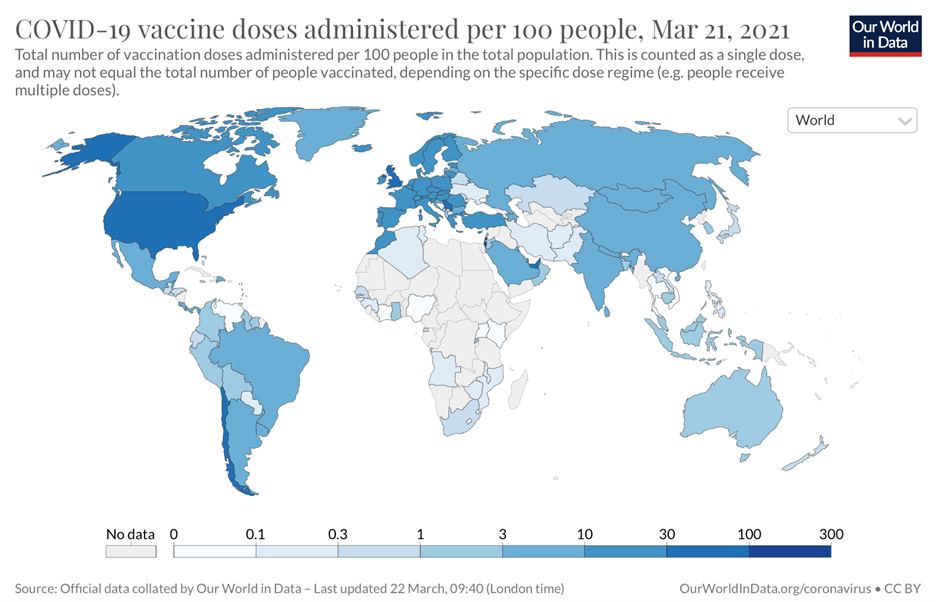
“The biggest vaccination campaign in history is underway. More than 447 million doses have been administered across 133 countries, according to data collected by Bloomberg. The latest rate was roughly 11 million doses a day.”, Bloomberg, March 21, 2021
Interesting Data and Studies
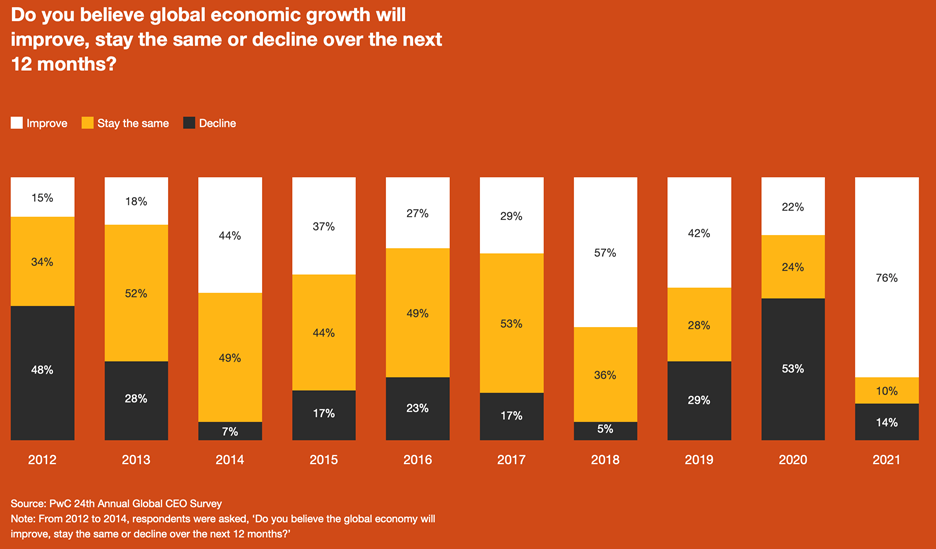
“Numbers tell a story, but we know there’s more to most stories than numbers. That’s why we’ve combined the findings from our 5,050 survey responses, gathered in January and February of 2021, with qualitative insights: interviews with chief executives conducted as part of our Inside the Mind of the CEO series and analysis from our Take on Tomorrow series, published between January and March, which tackles today’s most pressing issues to help leaders as they think about what’s next.”, PWC, mid-March 2011
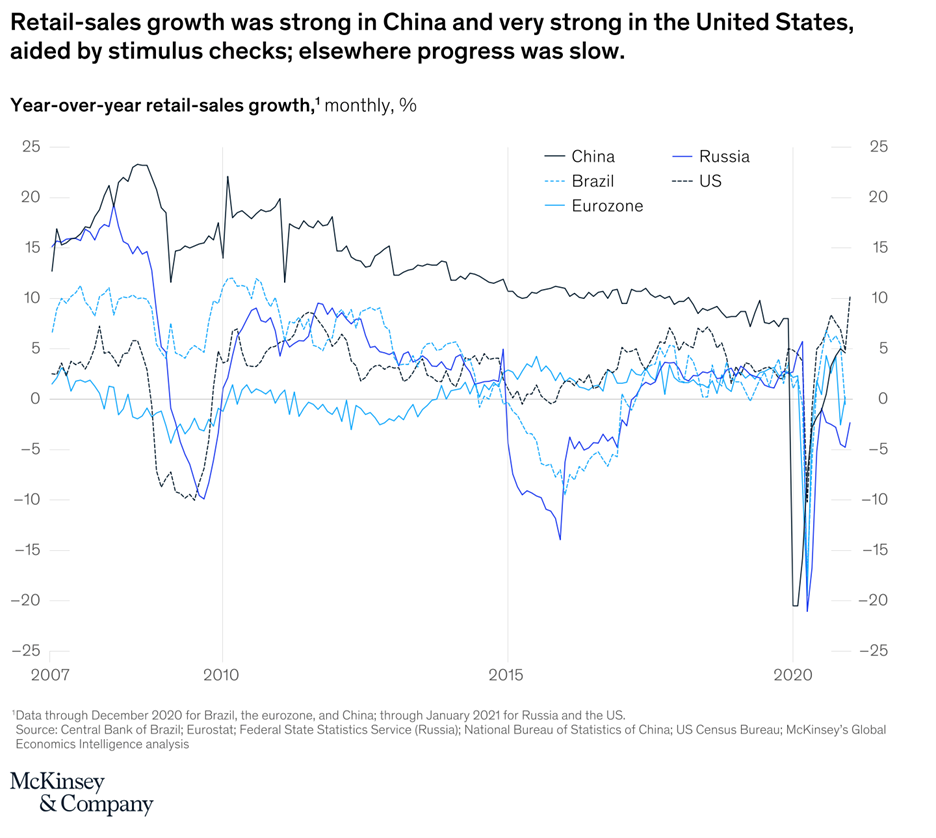
“Countries are now able to assess the damage to economic growth wrought in 2020 by the restrictions put in place to control the spread of the COVID-19 virus. All GEI-surveyed economies went into reverse gear in the early months of the year., McKinsey, March 8, 2021
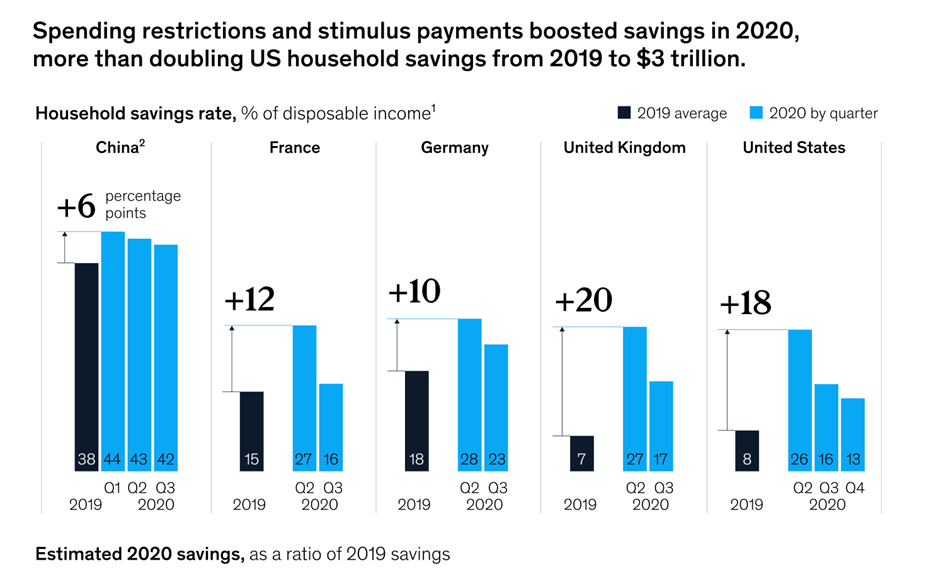
“The massive ten- to 20-percentage-point spike in the savings rate across the United States and Western Europe (amounting to a doubling of annual savings in the United States in 2020) left many households in a strong position to spend. That means an effective vaccine rollout to bring the pandemic to an end could restore consumer demand to pre-pandemic levels, fueled by rising consumer confidence, pent-up demand, and accumulated savings.”, McKinsey, March 17, 2021
Global and Regional Travel Updates
“Your most prized travel accessory is about to become your vaccine passport: Travel is definitely beginning to pick back up, but depending on where you’re headed and what type of trip you want to take, you may need to pack more than just your photo ID and wallet. Now, you might also need a vaccine or digital health passport before you hit the road.”, The Points Guy, March 22, 2021
“When will international travel return? A country-by-country guide to coronavirus recovery: Coronavirus has us frozen in place for the most part and dreaming of when we can start booking travel again. In the meantime, we’ve been doing a lot of stories at The Points Guy about what those dream trips look like.”, The Points Guy, March 15, 2021
“Magic is Back at Disneyland Resort! Theme Parks Plan to Reopen on April 30: After being closed for more than one year, magic is finally returning to the Disneyland Resort theme parks! Disneyland park and Disney California Adventure park are planning to officially reopen to the public on April 30, with limited capacity.”, Disney Park Blogs, March 17, 2021
“Is Travel Coming Back? Airports Have Busiest Days Since March 2020: While CDC still advises against travel, bookings rise as airline executives voice optimism for demand rebound: ‘This seems like it’s real,’ says Delta chief….Airports screened nearly 1.36 million people Friday and more than 1.34 million people on Sunday, two of the busiest days since March 2020.”, The Wall Street Journal, March 15, 2021
“Desperate to Revive Tourism, the EU Proposes a Digital COVID-19 Certificate: The European Commission’s proposed Digital Green Certificate will have a modest impact on the European Union’s tourism and hospitality sectors in the short term. But lingering questions on how COVID-19 immunity works and data privacy issues could complicate the implementation process. The European Commission unveiled on March 17 a plan to create a Digital Green Certificate with verified information on people’s COVID-19 status.”, Stratfor, March 18, 2021
“IATA Travel Pass Trialed on First International Flight: The International Air transport Association(IATA) Travel Pass is a reality, successfully trialed on a Singapore Airline (SG) flight to London where a group of passengers used the new travel credential system to enter the UK.”, Airways, March 18, 2021
“British Airways rolls out vaccine passports (and free snacks) to get us flying again: British Airways will launch a digital global vaccine passport in time for the planned resumption of international travel on May 17. Passengers who have had two Covid-19 jabs will be able to upload their vaccination details to the BA app on their smartphone to prove that they are safe to fly.”, The Sunday Times of London, March 14, 2021
“Disney to offer summer cruises from Miami — a first for the line: Disney’s cruising arm on Thursday said its 2,500-passenger Disney Dream would sail a series of three- and four-night summer voyages to the Bahamas out of the city starting on June 7, 2022. The trips will feature calls at Nassau and Castaway Cay, Disney’s private island in the Bahamas.”, The Points Guy, March 19, 2021
“Hawaiian Airlines Begins Offering Quarantine Free Travel From Japan: Beginning last weekend, Hawaiian Airlines passengers out of Narita who use Hawaii’s Pre-Clear Program and meet its requirements can now avoid a 10-day quarantine after arriving in Hawaii. On Thursday, Hawaiian Airlines will start checking-in Pre-Clear passengers at Kansai International Airport in Osaka. On Friday, Seoul’s Incheon International Airport will join the club.”, Simple Flying, March 16, 2021
“The American Express Travel Trends Report Says Exactly What We’re All Thinking — People Want to Travel: In March, American Express released its report, providing a glimpse into consumer sentiment toward travel. The biggest takeaway is that people not only want to travel again but are already hard at work planning their dream post-pandemic getaways. Who isn’t ready for a vacation?”, Travel + Leisure, March 10, 2021
“Delta offers more quarantine-free flights to Italy with new services from New York-JFK to Milan and Rome: Delta will offer quarantine-free flights from New York-JFK to Milan Malpensa airport starting April 2, 2021, a day after it launches to Rome Fiumicino. The services will enable customers eligible to travel to Italy to avoid the mandatory 14-day quarantine on arrival, following a rigorous testing protocol before and after travel.”, Delta News Hub, March 17, 2021
Country & Regional Updates
Latin America
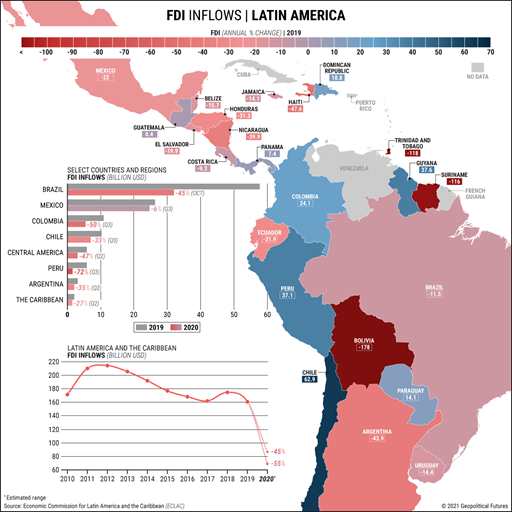
“For emerging and developing economies, foreign direct investment plays a crucial role in financing major development projects and growing their economies. This is especially true of Latin America. FDI into Latin America hit historical highs between 2011 and 2012, totaling almost $220 billion and accounting for 14 percent of the global total. But since then, FDI has been trending downward, and in 2019 it dropped by 7.8 percent.”, Geopolitical Futures, March 19, 2021
Australia
“Australia unveils $928 million COVID-19 stimulus package for tourism industry: The basket of airline ticket subsidies for travellers, cheap loans to small tour companies and financial aid for the country’s two largest airlines is designed to keep the critical sector ticking over until foreign tourists return.”, Reuters, March 10, 2021
Brazil
“Brazil economy its largest since 2015, central bank activity index shows: Brazilian economic activity rose sharply in January, a central bank index showed on Monday, indicating that Latin America’s largest economy has not only recovered all its pandemic-related decline but is now back to the size it was over five years ago.”, Reuters, March 15, 2021
Canada
“A return to patio dining — and sunny spring weather — inspires excitement in Toronto and Peel: Excitement was on the menu for patrons and staff alike as outdoor dining returned to Toronto and Peel Region this weekend with the help of spring sunshine and double-digit temperatures. ‘We are really excited to see our neighbours again,’ said Shahd Moustafa, manager of Eggstatic on Bayview Ave., in Toronto.”, The Star, March 21, 2021
“Walmart opens its first ghost kitchen in Canada: The retail giant’s Canada division has partnered with Ghost Kitchen Brands to open a delivery and pickup-only restaurant — also called a ghost kitchen — at its location in St. Catharines, Ontario. The companies plan to open four more locations in Woodstock, Ontario; Toronto; Lachenaie, Quebec; and Saint-Constant, Quebec, “in the coming months,” an announcement said.”, FOX Business, March 13, 2021
Chile
“How Chile’s vaccination push outpaced the rest of the Western Hemisphere: Between mass protests over inequality, a push for a constitutional overhaul and one of the worst coronavirus outbreaks in Latin America, Chile has weathered its share of turmoil over the past year. But the country’s virus vaccination campaign is going about as smoothly as anyone could hope. More than a quarter of Chile’s population has received at least one shot, a feat that only Britain, Israel and the Seychelles have managed to top. Chileans have not had to wait in long lines or navigate confusing signups. Anti-vaccine sentiment, a major hurdle elsewhere, remains low.”, The Washington Post, March 17, 2021
China
“US-China relations: investment environment improving for American firms, AmCham survey shows. Only 12 percent of the 345 US firms surveyed by the American Chamber of Commerce in China said the investment environment was deteriorating. This represented the lowest proportion since the question was first introduced in the 2012 survey.”, South China Morning Post, March 9, 2021. Compliments of Paul Jones, Jones & Co., Toronto
“China’s Factory Gate Prices Rise at Fastest Pace in More Than Two Years: The producer price index (PPI), which gauges changes in the prices of goods circulated among manufacturers and mining companies, rose 1.7% (link in Chinese) year-on-year last month, accelerating from 0.3% growth in January, according to the National Bureau of Statistics (NBS). The figure marks the highest since November 2018 and exceeds the median estimate of a 1.5% rise (link in Chinese) by a Caixin survey of economists.”, Caixin, March 10, 2021
“China’s Export Surge Fuels Global Buying Spree of Cargo Ships, Containers: As of March 1, global shipyards had received orders for 66 new container ships so far this year, representing 2.45 million in revised gross tonnage and driving up the total demand for containers to 530,000 twenty-foot equivalent unit (TEUs) at a cost of over $4.6 billion, according to data on Clarksons website published on Tuesday.”, Caixin, March 12, 2021
India
An interview with the Press Trust on India’s economic situation, its budget, bank privatization by Dr, Raghuran Rajan, Former Governor, Reserve Bank of India, LinkedIn post, March 14, 20211
Japan
“International spectators to be barred from Olympics in Japan: International spectators will not be allowed to enter Japan for this summer’s Olympic Games amid public concerns over coronavirus, organisers said on Saturday, crushing many fans’ hopes and setting the stage for a drastically scaled-back event. Some 600,000 Olympic tickets purchased by overseas residents will be refunded, as will another 300,000 Paralympic tickets, Toshiro Muto, the chief executive of the Tokyo 2020 organising committee, told a news conference.”, Reuters, March 20, 2021
Mexico
“Popeye’s coming to hundreds of locations in Mexico: Fried chicken chain Popeye’s announced on Friday a deal with the investors and business developers at JK Capital to bring hundreds of Popeye’s locations to Mexico. Currently, Popeye’s is only available in Guadalajara. There are 3,400 Popeye’s locations around the world. New locations in Mexico City will open this year. Popeye’s is part of the Restaurant Brands International Inc. (QSR) portfolio.”, MarketWatch, March 19, 2021
Saudi Arabia
“Without Vaccines, Saudi Efforts to Restore Hajj 2021 Won’t Be Enough: On March 9, Saudi King Salman approved a series of measures designed to help restart the kingdom’s dormant hajj economy ahead of the annual pilgrimage, which this year will take place in July. The measures include easing fees for companies, residents and transport that rely on the annual hajj pilgrimage for income. This indicates that Saudi Arabia is preparing to restart its religious tourism industry after a quiet 2020……”, Stratfor Worldview, March 11, 2021
“Saudia Signs Fleet Expansion Deal Worth US$3bn: In a significant financial deal, Saudia (SV) has signed a loan agreement worth SR11.3bn (US$3bn) for the purchase of 73 new planes. This would be the largest aircraft purchase ever made in Saudi Arabia.”, Airways, March 19, 2021
Singapore
“Singapore PM says may reopen borders by year-end: Prime Minister Lee Hsien Loong said in a TV interview he hoped Singapore would start re-opening its borders by the end of the year as more countries ramp up vaccination drives against COVID-19 infections. The Southeast Asian island nation has largely banned leisure travel, but has put in place some business and official travel programmes. It is also discussing the mutual recognition of vaccine certificates with other nations.”, Reuters, March 13, 2021
Spain
“Locked-down Spaniards seethe with envy as Germans flock to Mallorca: Tens of thousands of Germans are planning last-minute Easter getaways to Spain’s sun-kissed islands, leaving many Spaniards, who are not allowed to do the same because of a travel ban, upset.”, Reuters, March 18, 2021
United Kingdom
“Britain set to give Covid vaccines to all adults by early June: Being ahead of the EU by two months will save tens of billions. Every adult will be offered at least one jab by about June 10, beating the government target of the end of July, the research company Airfinity estimates.”, The Times of London, March 13, 2021
“UK economy rebounds ahead of schedule, says Bank of England: Government borrowing costs hit a one-year high as markets repriced for recovery and inflation after the Bank of England said the economic rebound was ahead of schedule and kept monetary policy on hold yesterday.”, The Sunday Times of London, March 19, 2021
“Britain says 26.85 million people have had first shot of vaccine: Britain said on Saturday that 26.85 million people had received a first dose of coronavirus vaccine, in line an earlier announcement that more than half the country’s adults had now had one shot.”, March 20, 2021
“Gym Group predicts a healthy future after reopening: Shares in Gym Group strengthened this morning amid optimism that people will still want to go to the gym once lockdowns are over. Fewer members have cancelled in this lockdown than in previous ones and 97 percent of Gym Group customers have said that they expect to get back to the gym as soon as possible.”, The Sunday Times of London, March 18, 2021
“I’m ready to set up rural office hubs, says IWG boss: Mark Dixon, 61, chief executive of IWG, is convinced that the world of work has changed forever as a result of the pandemic, marking the end of the large corporate headquarters where thousands work for one company. ‘People are moving to nice places to live because they know they can work from there. They think that there’s a future of not having to go to the office every day,’ he said.”, The Times of London, March 10, 2021
United States
“(U.S.) Vaccine manufacturing output expected to have tripled from February to March: Vaccine makers have drastically increased their manufacturing capacity, and output of the three vaccines authorized in the U.S. is expected to in March be nearly triple the amount produced in February, the Wall Street Journal reports.”, Axios, March 22, 2021
“Economy Revs Up as Americans Increase Spending on Flights, Lodging, Dining Out: Forecasters have raised their predictions for growth as consumers gain confidence; ‘I’d rather travel than do almost anything.’ Restaurant and hotel bookings are up. Airplane tickets are selling fast. Consumers spent more on gyms, salons and spas in recent weeks than they have since the coronavirus pandemic began.”, The Wall Street Journal, March 19, 2021
“New Small Business Report Has Silver Lining: The report finds small business optimism has emerged around several of President Biden’s PPP changes, and the new May timeline for widespread vaccine distribution. This shift in vaccine availability should help 28% more small businesses to recover in 2021, according to the Alignable poll taken during the first week of March.”, Franchising.com
“Spring break boom boosts business owners’ hopes: ‘Noticeably busy’: Warmer weather and a loosening of restrictions has resulted in a spike in travel. Spring break crowds have brought a much-needed boost to the hopes of business owners across the country after more than a year of struggle and hardship under coronavirus lockdowns and restrictions.”, FOX Business, March 21, 2021
“Air Travel in the U.S. Reached Highest Passenger Screenings in Nearly a Year, TSA Spokesperson Says. TSA officers screened 1,357,111 people at airport security checkpoints on Friday. The last time checkpoint throughput was that high was March 15, 2020.”, People Magazine, March 13, 2021
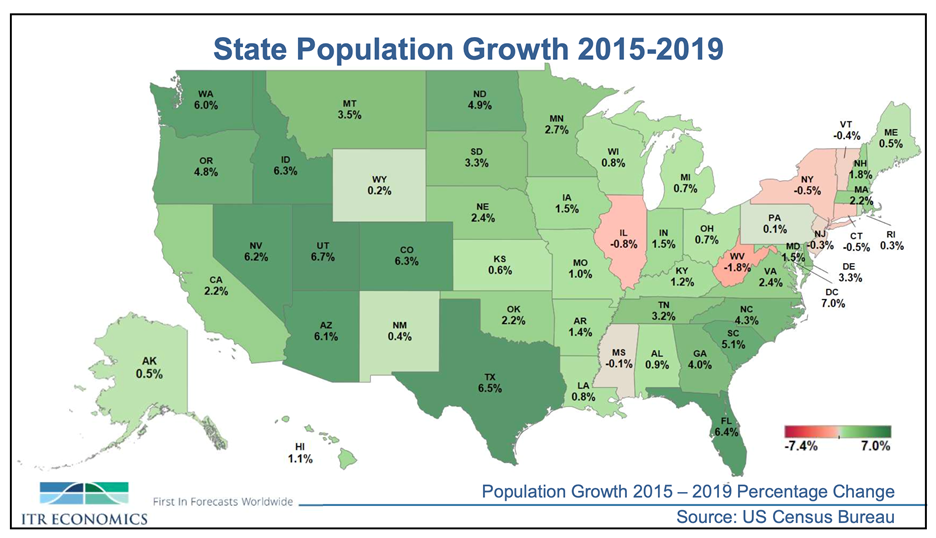
This chart, courtesy of ITR Economics is from a Vistage CEO webinar this week, shows how U.S. population is not only growing but moving. Most existing population movement is to lower tax states and to the south and west.
Brand News
“Restaurant Trends 2021: The Year of Reopening & Recovery: A new ebook, “Restaurant Trends 2021: The Year of Reopening & Recovery” from CAKE, takes a look into what the restaurant technology firm sees for the year ahead. The report gathered insights from culinary experts and market analysts to help restaurant operators find the information they need to make the most out of 2021.”, Franchising.com
“Restaurant reopenings boost recovery in US jobs market: Lifting of restrictions on indoor dining and warmer weather fuel hopes for further growth. When combined with hotels and recreational facilities, restaurants accounted for the bulk of the 379,000 jobs added to the US economy last month, helping nudge the unemployment rate down to 6.2 percent.”, The Financial Times, March 8, 2021
“Minor DKL is gearing up to be a leader in the virtual brand space: International & emerging brands general manager Jarrod Appleby talks to QSR Media about the food group’s approach in creating virtual brands, including Burgers with Bite – now the largest concept of its kind in Australia.”, QSR Media AU, March 14, 2021. Compliments of Jason Gehrke, The Franchise Advisory Centre, Brisbane
“Can Popeyes threaten KFC’s dominance in China? It’s going to try: Popeyes will debut in the U.K. this year, the company is expected to announce this week. That will expand its budding empire to about 30 countries, and Australia is also likely on the docket. Popeyes opened its first restaurant (in China) in May with a franchise partner and wants to reach 1,500 in a decade….”, Fortune, March 21, 2021
“Shake Shack, Uber Eats expand delivery partnership nationwide: The fast-food company announced it is rolling out a delivery service that will be available through the Shake Shack app for iOS-enabled Apple devices starting Wednesday, March 17.”, FOX Business, March 17, 2021
“Smoothie King Soars as a World-Class Brand Future-Focused on Even Greater Franchise Growth: The world’s largest smoothie brand is riding a global wave of momentum into 2021, poised for more expansion as an innovative operator and top health and wellness-focused franchise. After a record-shattering year of growth, Smoothie King shows no signs of slowing down.”, Franchising.com
“Sonic Drive-In Finds the Fast Lane During COVID-19: In a year where eating in your car became cool again, the classic brand kept evolving. The brand’s pull-up design and throwback DNA became the ideal “old-is-new” outlet of a global pandemic. Crowd avoidance as the price to entry. A time when eating in your car became the new night out with friends or family.”, Franchising.com
“White Castle Is Celebrating Its 100th Birthday with Events, Offers, & New Menu Items: White Castle is purportedly the very first fast food hamburger chain. Ever! And when your captive Zoom audience gamely asks, “how old is it,” you can tip your hat 1920s style and tell ‘em it’s celebrating 100 turns around the sun this very year. In honor of this august occasion, the slider capital of the world has packed 2021 with all manner of celebrations. ‘What started as a few little hamburger stands has turned into a successful family-owned fast-food hamburger chain and retail brand that has withstood the test of time,’ Lisa Ingram, White Castle’s president and CEO, said in a statement.”, Thrillist, March 12, 2021
Articles and Charts About Doing Business Going Forward
“The Next Great Disruption Is Hybrid Work—Are We Ready? Exclusive research and expert insights into a year of work like no other reveal urgent trends leaders should consider as hybrid work unfolds. We’re on the brink of a disruption as great as last year’s sudden shift to remote work: the move to hybrid work — a blended model where some employees return to the workplace and others continue to work from home. We’re experiencing this at Microsoft, and today we shared how we’re evolving our own hybrid work strategy for our 160,000+ employees around the world.”, Microsoft, March 2021
“97% of Fortune 500 Companies Rely on Social Media. Here’s How You Should Use It for Maximum Impact. Social media platforms such as Instagram, Facebook, TikTok, YouTube and Pinterest offer countless ways for brands to connect with customers (both old and new). Additionally, as of 2021, there are roughly 3.78 billion social media users all over the world, a 5 percent increase from 2020.”, Entrepreneur, March 18, 2021
“Fast growth companies are the true powerhouses of the U.S. economy: A new study examines the economic multiplier effect of so-called “scale ups,” and the challenges these companies face. Executives of scaling companies are extremely optimistic about growth prospects, despite the economic uncertainty caused by the pandemic, according to the study, which surveyed 300 leaders of software companies, including 112 scaling companies…..these are companies increasing revenue and employees 20% or more each year.” Fast Company, February 2, 2021
We accelerate a company’s global development
Edwards Global Services, Inc. (EGS) provides a complete International solution for companies Going Global. From initial global market research and country prioritization, to developing new international markets, providing in-country operations support and problem solving around the world. Our U.S. based executive team has experience living and working in many countries. Our Associate network on the ground overseas covers 40+ countries.
Edwards Global Services, Inc. (EGS) has twice received the U.S. President’s Award for Export Excellence.
Find out more about how we help companies Going Global successfully at:
Download our latest 40 country ranking chart at this link:
Download our latest published article, “2021 International Outlook – Mixed Prospects Amid Global Uncertainty”, go to this link:

William (Bill) Edwards, CFE, is CEO and Global Advisor of Edwards Global Services (EGS). He has 46 years of international operations, development, executive and entrepreneurial experience and has lived in 7 countries. With experience in the franchise, oil and gas, information technology and management consulting sectors, he has directed projects on-site in Alaska, Asia, Europe and the Middle and Near East. Mr. Edwards advises a wide range of companies on early to long term global development of their brands.
For truly global market research, operations and development support across 40 countries, contact Mr. Edwards at bedwards@edwardsglobal.com or +1 949 224 3896.
https://calendly.com/geowizard/30min Click here to schedule a call with Bill Edwards to discuss how to succeed in developing your company around the world.
EGS Biweekly Global Business Newsletter Issue 25, Monday, March 8, 2021
By William (Bill) Edwards, CEO of Edwards Global Services, Inc. (EGS)
“Dare mighty things.”, Theodore Roosevelt. This was in a coded message on the main decent parachute for the NASA’s Perseverance Mars rover when it landed successfully on March 2, 2021
“The secret of change is to focus all your energy not on fighting the old but on building the new.” — Socrates, father of Western philosophy
“The value of an idea lies in the using of it.” — Thomas Edison, co-founder of General Electric
Introduction
Our biweekly newsletter focuses on what is happening around the worldthat impacts new trends, health, consumer spending, business investment and travel.
Highlights in issue #25:
- Global real GDP growth in 2021 is expected to be 5.3%…..The global recovery is expected to continue in 2022 with real GDP growth of around 4%.
- More than 299 million (vaccine) doses have been administered across 111 countries, but there is a mixed message in several countries that are being slow to vaccinate their populations.
- What’s Next For Small Businesses? 4 Trends And Predictions For 2021 And Beyond
- Milestone: All Apple U.S. stores are back open and Disneyland and other California theme parks can reopen April 1
- The future of work after COVID-19: A new McKinsey study
- Chile is leading Latin America in vaccinations
- Brand News: updates on Carl’s Jr®, Lift Brands®, P.J.’s Coffee®, Sola® Salon Studios and Walk-On’s Sport Bistreaux®
We daily monitor 30+ countries, 40+ international information sources and six business sectors to keep up with what is going on in this ever-changing environment. Our GlobalTeam™ on the ground covers 43 countries and provides us with updates about what is happening in their specific countries.
Please feel free to send us your input and sources of information. Our contact information is at the bottom of this newsletter.
First, a few Personal Comments
‘Dare mighty things” is a great motto for the future of the world. Global business sentiment is rising as proven vaccines penetrate over 111 countries. Global GDP is projected to grow 5.3% in 2021. Global travel is still somewhat mixed with talk of multiple travel vaccine passports. California theme parks are reopening after a year of closures and that is probably the best news for the 25th issue of our biweekly global business update newsletter started way back on April 6, 2020.
Interesting Data and Studies
“The future of work after COVID-19: The pandemic accelerated existing trends in remote work, e-commerce, and automation, with up to 25 percent of workers than previously estimated potentially needing to switch occupations.”, McKinsey, February 18, 2021
”Global real GDP growth in 2021 is expected to be 5.3% (with a plausible baseline forecast range of 4.3–6.3%). The global recovery is expected to continue in 2022 with real GDP growth of around 4%. Major vaccination campaigns are in progress, and vaccination rates sufficient for herd immunity are likely to be attained in advanced economies in q3–q4 2021, allowing most social distancing restrictions to end by the end of 2021 and leading to a strong economic rebound in the second half of 2021.”, Euromonitor, March 8, 2021
Global Vaccine Update
“More than 299 million doses have been administered across 111 countries, according to data collected by Bloomberg. The latest rate was roughly 7.65 million doses a day. In the U.S., more Americans have now received at least one dose than have tested positive for the virus since the pandemic began. So far, 87.9 million doses have been given. In the last week, an average of 2.16 million doses per day were administered.”, Bloomberg, March 6, 2021
Latest update from Our World in Data. http://bit.ly/3bmxSTx
“A New Covid-19 Experiment From Asia: Letting Companies Buy Vaccines: Firms say strategy would allow faster return to full capacity, but public health experts warn it could steer limited shots to the middle class and wealthy. In Indonesia, where Covid-19 infections remain high and many businesses are operating with reduced staff, companies see the plan as an opportunity to return to full capacity faster and reassure workers concerned about contagion.”, The Wall Street Journal, March 8, 2021
“Vietnam began vaccinations with medical workers in Hanoi, Hai Duong and Ho Chi Minh City getting the first shots Monday morning, the government website reported. Health Minister Nguyen Thanh Long said Vietnam will receive 1.3 million vaccine doses this month and more are expected in April and May, according to the ministry’s website.”, Bloomberg, March 7, 2021
Global and Regional Travel Updates
“COVID-19 travel insurance becoming a vacation staple: COVID-19 insurance policies are increasingly joining passports and sunscreen as vacation staples, creating opportunities for insurers as more countries require mandatory coverage in case visitors fall ill from the coronavirus.”, Reuters, March 7, 2021
“Etihad Airways (EY) today announced an extension of coverage for their global COVID-19 insurance to September 30, 2021. ‘Extending Etihad’s COVID-19 global wellness insurance reinforces the effectiveness of Etihad Wellness, the airline’s health and hygiene [program],’ said EY Senior Vice President of Sales and Cargo Martin Drew. He further added that the extended coverages is ‘an added benefit automatically provided to all guests – no exceptions.’”, Airways Magazine, March 8, 2021
“In the thick of the pandemic, it seemed hard to imagine that we would ever travel for business again. Health and hygiene concerns coupled with global lockdowns, conspired to take all our meetings online. However, now the future is looking brighter, will businesses stay loyal to Zoom, or will we return to the old ways of travel and doing business face-to-face?”, Regus MagazineUK, February 2021
“‘I even miss the airline delays:’ Meet the business travelers who can’t wait to get back on the road. Some business travelers welcomed the pandemic’s pause. Not these road warriors.”, Washington Post, February 18th, 2021
“Australia Extends International Border Closure: To prevent the spread of COVID-19 in the country, Australia announces an extension of the closure of its international borders up to June 17.”, Airways Magazine, March 6, 2021
“Singapore Airlines will trial ‘vaccine passport’ app on flights between Singapore and London in coming weeks that could store negative Covid test results and proof of jab: The phone software from IATA stores evidence of a negative Covid test as well as the facility to store evidence travellers have had coronavirus vaccinations. It is being trialled over the next few weeks with Singapore Airlines on a route between Singapore and London.”, Daily Mail UK, March 3, 2021
“Qantas To Trial ‘Vaccine Passports’ To Ensure Incoming Passengers Have Covid-19 Jab: Qantas is sticking to its plan to ensure all passengers and crew on their planes are vaccinated against the coronavirus. The Aussie airline was the first in the world to announce a system that would require proof of a Covid-19 vaccination before flying when the jabs were approved and enough of the population had been vaccinated.”, LAD Bible, March 4, 2021
Australia
“The reported demise of the nation’s CBDs greatly exaggerated: research: Reports of the demise of Australia’s CBDs appear greatly exaggerated with new research suggesting they should emerge from the coronavirus pandemic as renewed economic powerhouses.”, Brisbane Times, March 1, 2021
Brazil
“Brazilian Airlines Await Vaccine as Recovery Stalls: While the months that have followed the March and April 2020 demand depression have seen a steady recovery in air traffic in Brazil, the second wave of the COVID-19 pandemic — which has been razing most states’ health systems — has made passenger numbers collapse again, especially with several states imposing restrictions that are almost analogous to lockdowns.”, Airline Geeks, March 7, 2021
“U.S. Commercial Service Brazil Country Commercial Guide: The Country Commercial Guide (CCG) is your trusted source about how to do business in an international market. Authored by seasoned trade experts at U.S. embassies and consulates, the guides provide insight into economic conditions, leading sectors, selling techniques, customs, regulations, standards, business travel, and more. Updated 2021
Chile
“Vaccination is going well in Chile. Why not its neighbours? Jabbing is politicised in much of Latin America. Having vaccinated nearly 20% of its adults, the sixth-best performance in the world, Chile is on track to meet its target of covering 80% of its 19m people by June 30th.”, The London Economist, March 6, 2021
China
“Manufacturing Recovery Slows as Employment Comes Under Pressure, Caixin PMI Shows: The Caixin China General Manufacturing Purchasing Managers’ Index (PMI), which gives an independent snapshot of the country’s manufacturing sector, fell to 50.9 in February from 51.5 the previous month…”, Caixing Global, March 1, 2021
“Marriott plans to open over 60 new hotels in China in 2021: The operation of these new hotels, as well as Marriott’s existing businesses, will prioritize China’s domestic market as international traveling has not fully resumed due to COVID-19. It will cater to holiday travel demands as well as short-distance travel and staycations. The company also plans to incorporate ways to attract younger guests.”, Shine, March 4, 2021. Compliments of Paul Jones, Jones & Co., Toronto
“China is the world’s most populous country with an astounding 1.44 billion citizens. Altogether, the size of the population of China is larger than nearly four regions combined: South America, Europe (excluding Russia), the U.S. & Canada, and Australia & New Zealand. Using data from the United Nations, this unconventional map reveals the comparative size of China’s population next to a multitude of other countries.”, Visual Capitalist, February 22, 2021
“Tim Hortons China raises fresh cash plans to add 200 shops in 2021: Tim Hortons China has completed a new fundraising round from Sequoia Capital China, Tencent Holdings and Eastern Bell Capital, and plans to add more than 200 shops to its network this year, the coffee chain operator said on Friday.”, Reuters, February 25, 2021. Compliments of Paul Jones, Jones & Co., Toronto
France
“France lifts restrictions on Oxford/AstraZeneca jab for over-65s: New data bring about policy shift as other EU countries likely to abandon age limits. France is to expand its use of the Oxford/AstraZeneca Covid-19 vaccine after additional clinical data proved its efficacy among people aged over 65, reversing the position Paris took a month ago.”, The Financial Times, March 1, 2021
Germany
“In major about-face, Germany to give AstraZeneca COVID vaccine to those 65 and over: Germany and Sweden joined countries widening guidelines for AstraZeneca Plc’s coronavirus vaccine, saying recent data now support giving the shot to the elderly.”, Fortune Magazine, March 5, 2021
India
“India’s Covid-19 Vaccine Is Found Effective, Boosting National Efforts: India’s Bharat Biotech said its Covid-19 vaccine has proven 81% effective at protecting people in a large clinical trial, a report that could invigorate India’s inoculation drive and vaccine-diplomacy efforts.”, The Wall Street Journal, March 3, 2011
Ireland
“This Economy Grew Faster Than China’s Thanks to Big Tech, Pharma: Ireland lured big tech and pharma companies to its shores with its low taxes. When the pandemic struck, that paid off handsomely. Today, the booming profits from those sectors are generating taxes that are helping the Irish government to pay for the costly lifelines it has thrown to much of the rest of the economy, which has been hammered by the pandemic.
Korea
“South Korea’s central bank says the country’s economy shrank for the first time in 22 years in 2020 as the coronavirus pandemic destroyed service industry jobs and depressed consumer spending. Preliminary data released by the Bank of Korea on Thursday showed the country’s gross domestic product last year contracted 1% from 2019.”, ABC News, March 4, 2021
New Zealand
“Franchize Consultants’ January 2021 Franchising Confidence Index sets the stage for the year, with 30 franchisors providing a window into current and more long-term opportunities and challenges. In terms of sentiment, the franchising community is more positive on most indicators compared to 2020.”, Franchising Confidence Index, February 12, 2021
Singapore
“Singapore’s economy is slowly recovering as income and spending tick upwards, DBS data shows: Analysing anonymised customer data, the island nation’s largest bank has noted salary improvements among lower-paid workers, and fewer customers showing wage cuts.”, South China Morning Post, March 2, 2021
Thailand
“Thailand starts COVID-19 vaccination campaign: Thailand kicked off its COVID-19 inoculation campaign on Sunday, with cabinet ministers, health officials and medical professionals among the first in the queue to receive vaccinations.”, Reuters, February 28, 2021
Turkey
“Gross Domestic Product obtained by addition of four quarters with chain linked volume index (2009=100), increased by 1.8% in 2020 compared with the previous year. Gross domestic product at current prices increased by 16.8% and reached 5 trillion 47 billion 909 million TRY in 2020 compared with the previous year. The gross domestic product per capita was 60 537 TRY and 8 599 US Dollars at current prices in 2020. Financial and insurance activities increased by 21.4% in 2020.”, Tuik.gov.tr, March 1, 2021
United Kingdom
“Early vaccine data suggests Britain won’t need another lockdown: Vaccination will stop people passing on the coronavirus “almost completely”, the Public Health England head of immunisation has forecast. Dr Mary Ramsay said evidence was mounting that vaccination worked to prevent infections and stop people transmitting the virus, something that would make it much easier to ease lockdown quickly and permanently.”, The Sunday Time of London, March 3, 2021
“Huge rise in holiday bookings as Britons dream of the sun: Spain and Greece top the destinations as firms report 600% increase in a week.”, The Times of London, February 23, 2021
“Schools to reopen across England tomorrow – here are the new safety measures and the key dates in other UK nations. Students have spent months learning remotely and those returning to secondary schools will find several safety measures.”, Sky News, March 7, 2021
“BP’s Office Staff to Work From Home Two Days a Week Under Hybrid Model: BP PLC said Monday that it is introducing a new hybrid model of working for staff who had previously been fully office-based, under which around 25,000 employees will typically work from home two days a week.”, The Wall Street Journal, March 8, 2021
United States
“U.S. Businesses Optimistic About Economy Due to Vaccines and Hiring, Fed Beige Book Says: Most businesses are optimistic about the economic recovery this year as coronavirus vaccines are more widely distributed and hiring picked up slowly across the country, a Federal Reserve report said Wednesday.”, The Wall Street Journal, March 3, 2021
“U.S. Set to Power Global Economic Recovery From Covid-19: For the first time since 2005, America may make a bigger contribution to growth than China…After the 2008 financial crisis, the global economic recovery was powered by China, as the U.S. experienced the weakest revival since the Great Depression. The world economy is likely to grow by around 6% this year, according to Oxford Economics, the fastest rate in almost half a century, as vaccine campaigns allow pandemic restrictions to be lifted and businesses to snap back.”, The Wall Street Journal, March 8, 2021
“Disneyland and other California theme parks can reopen April 1 — but it will be different than before: After being closed due to the coronavirus pandemic since March 2020, Disneyland received conditional approval from the state of California to reopen. Other in-state theme parks, such as Universal and Knott’s Berry Farm, can also open as soon as April 1.”, The Points Guy, March 5, 2021
“Apple says all U.S. stores open for the first time since start of pandemic: The milestone is a sign that the pandemic is winding down in the U.S. The stores closed nearly a year ago as COVID-19 first began to spread rapidly across the country. After two stores in Mexico reopen on Tuesday, there will only be 12 Apple stores in France and two stores in Brazil that are still closed, per CNBC.”, Axios, March 1, 2021
Brand News
“Ty Menzies and Andy Peat of Snap Fitness®: Many franchise brands project a ‘family-first’ philosophy, but when the times get tough, do they have what it takes to have the tough conversations needed with franchisees – as well as celebrating the victories? Ty Menzies, global CEO for Lift Brands®, believes that Snap Fitness® has exactly that. That’s what has allowed this 24/7 fitness provider to not only have thousands of sites open and in development around the world but also double-down on support for its growing network….”, Global Franchise magazine podcast, February 26, 2021
“Q&A with Christina Russell, CEO of Sola Salon & and The Woodhouse Day Spa: I have always had a true passion for helping others achieve their dreams of business ownership, and franchising has been the vehicle for countless individuals to pursue their entrepreneurial goals. So, there was a natural synergy that existed that immediately attracted me to franchising.”, Franchising.com, March 2021
“Walk-On’s Sports Bistreaux Opens Milestone 50th Restaurant: 20 years ago, the napkin that inspired our concept was drawn. To celebrate, we surprised our founder with a few sentimental gifts and a toast! Here’s to many more years of bringing game day with a taste of Louisiana to the rest of the country (and the world).”, LinkedIn post, March 4, 2021
“Carl’s Jr. just keeps growing and growing … now up to 24 restaurants in Spain with our Master Franchise Beer & Food! Now in Málaga!”, LinkedIn post, March 6, 2021
“PJ’s Coffee Is Brewing Up Franchise Opportunities in 2021: All told, franchisees opened 20 new locations during the year and the brand’s portfolio soared past 120 locations. Even still, brand officials said 2021 has the potential of being an even better year for growth and they expect to open 48 more stores in 2021.”, Franchising.com, March 5, 2021
“RFG (Australia) bets on drive-thrus, mobile vans to offset lingering shopping centre pains: Retail Food Group (RFG) is the latest major food & beverage company to bet on additional off-premise channels to offset the lingering impact of COVID-19 to its shopping centre locations.”, QSRMedia.com.au, February 21, 2021
“Everything you need to know to make your franchise a global success: A recent survey of Franchisor members of the International Franchise Association indicated more than 80% were either international or planned to go global this decade.”, Geowixard.biz, February 18, 2021
“The breakfast daypart is reawakening: Morning comfort foods and indulgences are bringing back home-bound diners. ‘[Consumers] are coming back to different dayparts and breakfast is one of them,’ said Melissa Friebe, senior vice president insights and analytics at Taco Bell.”, Nation’s Restaurant News, February 23, 2021
Articles and Charts About Doing Business in The Times Of COVID-19 and Beyond
“What’s Next For Small Businesses? 4 Trends And Predictions For 2021 And Beyond: Despite a challenging economy, Salesforce research found that a full third (34%) of small businesses said they’re prioritizing developing customer relationships over one-time transactions.”, Forbes, March 2, 2021
“Assuming control of the COVID-19 pandemic is forthcoming this year, FRANdata predicts that by year-end, franchising will have recovered to nearly 2019 levels in most metrics: business growth, employment, economic outlook, and contribution to the GDP. FRANdata projects that more than 26,000 new franchised business will open in 2021, recovering most of the losses felt in the previous year. Franchises will employ some 8.3 million people, adding nearly 800,000 new jobs.”, Franchise.org, February 2021
“Baby boomers, to retailers’ surprise, are dominating online shopping: Older Americans are increasingly buying groceries — and just about everything else — on the Internet, and those over 65 are now the fastest-growing category of e-commerce shoppers.”, The Washington Post, March 3, 2021
We accelerate a company’s global development
Edwards Global Services, Inc. (EGS) provides a complete International solution for companies Going Global. From initial global market research and country prioritization, to developing new international markets, providing in-country operations support and problem solving around the world. Our U.S. based executive team has experience living and working in many countries. Our Associate network on the ground overseas covers 40+ countries.
Edwards Global Services, Inc. (EGS) has twice received the U.S. President’s Award for Export Excellence.
Find out more about how we help companies Going Global successfully at:
Download our 4th quarter 2020 GlobalVue™ 40 country ranking chart at this link:
Download our latest published article, “2021 International Outlook – Mixed Prospects Amid Global Uncertainty”, go to this link:
William Edwards, CFE, is CEO and Global Advisor of Edwards Global Services (EGS). He has 46 years of international operations, development, executive and entrepreneurial experience and has lived in 7 countries. With experience in the franchise, oil and gas, information technology and management consulting sectors, he has directed projects on-site in Alaska, Asia, Europe and the Middle and Near East. Mr. Edwards advises a wide range of companies on early to long term global development of their brands.
For truly global market research, operations and development support across 40 countries, contact Mr. Edwards at bedwards@edwardsglobal.com or +1 949 224 3896.
https://calendly.com/geowizard/30min Click here to schedule a call with Bill Edwards to discuss how to succeed in developing your company around the world.
EGS Biweekly Global Business Newsletter Issue 24, Monday, February 22, 2021
By William (Bill) Edwards, CEO of Edwards Global Services, Inc. (EGS)
“We delight in the beauty of the butterfly, but rarely admit to the change it has gone through to achieve that beauty”, Maya Angelo. Compliments of Catharine Monson, CEO, FASTSIGNS
“The secret of success is to do the common thing uncommonly well”, Averstu.com
“If your dreams do not scare you, they are too small.”, Richard Branson
““Travel is fatal to prejudice, bigotry and narrow-mindedness.”, Mark Twain
Introduction
Our biweekly newsletter focuses on what is happening around the worldthat impacts new trends, health, consumer spending, business investment and travel.
Highlights in issue #24:
- CEO business confidence on the rise in two surveys
- Australia, Japan and New Zealand begin to vaccinate citizens
- The future of work after COVID-19 – a major McKinsey report
- Pizza’s popularity has proven itself to be pandemic-proof and growing while restaurants in general continue to suffer during the crisis.
- US Consumers went on an Unexpected Rampage in January
- US Restaurant Customers Showing Signs Of Pandemic Fatigue
- Etihad Airways and Singapore Airlines have fully vaccinated air crews
We daily monitor 30+ countries, 40+ international information sources and six business sectors to keep up with what is going on in this ever-changing environment. Our GlobalTeam™ on the ground covers 43 countries and provides us with updates about what is happening in their specific countries.
Please feel free to send us your input and sources of information. Our contact information is at the bottom of this newsletter.
First, a few Personal Comments
This issue has numerous updates on vaccines and travel around the world. Plus, some interesting executive confidence surveys and studies and announcements related to the future of work after COVID-19. As of today, the number of vaccine doses given to date around the world has reached 208,000,000 with the COVID-19 cases to date standing at 112,000,000. Travel new is both up and down but both airlines and travelers are planning for 3rd and 4th quarter increases. Finally, news on how some brands are innovating to meet global consumer needs and desires.
Vaccine Updates from Around the World
“Vaccines cut Covid hospital admissions by up to 94%: Edinburgh University research ‘very encouraging’. By the fourth week after the initial dose, the Pfizer-BioNTech and Oxford-AstraZeneca vaccines reduced recipients’ chances of being admitted to hospital with Covid-19 by up to 85 per cent and 94 per cent respectively.”, The Times of London, February 22, 2021
“Johnson unveils plan to end England lockdown by end of June: Prime minister announces easing of restrictions starting with reopening of schools on March 8. The prime minister’s long-awaited easing plan, published in a 60 page document on Monday, contains four stages for ending the harsh social distancing restrictions that will take place over a four-month period.”, The Financial Times, February 22, 2021
“Pfizer says it’s ramping up vaccine production: Pfizer CEO Albert Bourla said Friday that the company was adding suppliers and expanding its manufacturing capacity to ramp up production of the Pfizer-BioNTech coronavirus vaccine.”, Axios, February 19, 2021
“The CDC says people who are fully vaccinated can skip quarantine — with caveats: According to an update from the U.S. Centers for Disease Control and Prevention (CDC), fully vaccinated people will no longer be required to quarantine after being exposed to someone with COVID-19 if they meet all the criteria.”, The Points Guy, February 11, 2021
“Australian PM is vaccinated as rollout begins: Australian Prime Minister Scott Morrison has received the coronavirus vaccine as the country prepares to start inoculations this week. His jab was televised on Sunday in order to help boost confidence in the vaccine rollout across Australia. Vaccinations officially begin on Monday and at least 60,000 doses are expected to be administered next week.”, BBC News, February 20, 2021
“Japan formally approves its first COVID-19 vaccine: Japan has formally approved its first COVID-19 vaccine and says it will start nationwide inoculations within days, but months behind the U.S. and many other countries. Japan’s health ministry said it had approved the vaccine co-developed and supplied by Pfizer Inc.”, ABC News, February 14, 2021
“Japan vaccine supplies to be limited, delaying shots for elderly: Japan will only receive limited doses of COVID-19 vaccines for the first months of the rollout and shots for the elderly will be distributed gradually, the country’s inoculation chief said. Pfizer Inc, the maker of Japan’s only approved COVID-19 vaccine, is ramping up production in Europe, but those increased supplies are not likely to reach Japan until May, Administrative Reform Minister Taro Kono cautioned on Sunday in an interview with national broadcaster NHK.”, Reuters, February 22, 2021
“New Zealand begins COVID-19 vaccinations programme, Australia starts Monday: New Zealand started its official rollout of Pfizer-BioNTech’s COVID-19 vaccine on Saturday, while Australia finalised plans to begin inoculations on Monday, a new phase in tackling the virus that both countries have kept largely contained.”, Reuters, February 19, 2021
“Spain betting on vaccine passports to revive summer tourism: Spain hopes the introduction of vaccination passports combined with pre-travel COVID-19 testing will allow British tourists to return to Spanish destinations this summer, a tourism ministry source told Reuters on Tuesday. The government has no plans to introduce quarantines on foreign visitors, and was also counting on a wider agreement to be hammered out between Europe and Britain to remove restrictions on non-essential travel, the official added.”, Reuters, February 16, 2021
“Lifelong immunity hope for Covid-19 vaccine: Trials of coronavirus vaccines for children as young as five are set to begin within days, laying the groundwork for a childhood immunisation programme that could protect people from Covid-19 for most of their lives.”, The Times Of London, February 14,,2021
Interesting Data and Studies
“CEO confidence hits 17-year high as vaccine rollout continues: Overall, 82% of CEOs expect economic conditions to improve over the next six months, up from 63% last quarter, the Conference Board reported. The percentage of CEOs expecting conditions to worsen was cut in half, dropping to 7% from 15%. Similarly, 78% of CEOs anticipate short-term prospects in their own industries to improve, up from 65% in September.”, Axios, February 19, 2021
“CEO Projections 2021: Reigniting the Growth Engine: In the year ahead, an economic recovery will release pent-up demand. CEOs should consider these insights to prepare their business for the next growth cycle. CEOs report that “hiring, recruiting and sourcing” is their No. 1 decision area. Technology tops the list of planned investments for 2021. Morale is a critical challenge that CEOs must address at all levels.”, Vistage, February 21, 2021
Global and Regional Travel Updates
“What will travel look like after the pandemic?: Covid-19 has brought international travel to a standstill. But it will recover and may even become a better experience, says Simon Wright.”, The Economist. February 13, 2021
“Study Finds Most Travelers Are Rebooking Canceled Trips in 2021: More than half of travelers have rebooked or plan to rebook canceled trips in 2021, according to an IHG Hotels & Resorts survey of 6,000 people, including 2,000 Americans, conducted by OnePoll in January.”, Travel Pulse, February 9, 2021
“Three Main Latin American Carriers Reinforces Strategies to Protect Passengers: The main Latin American airlines LATAM, Avianca and Aeroméxico have announced campaigns to reinforce the safety and operational hygiene protocols offered to its passengers, all in line with the recommendations of international authorities.”, Airline Geeks, February 20, 2021
“The Importance of Travel & Tourism in Driving Global Economy: Restoring international travel and tourism will be vital to enhancing social progress and driving the global economy post-pandemic, according to a new Social Impact Paper released by the World Travel & Tourism Council (WTTC) in collaboration with U.S.-based nonprofit Social Progress Imperative (SPI).”, Travel Pulse, February 10, 2021
European Union Travel Confidence – https://bit.ly/3a1h1VL
Asia Pacific Traveler Confidence – https://bit.ly/2Zf0ZSd
“Alaska Airlines Offering VeriFLY Digital Health Passport for International Travel: Alaska Airlines passengers arriving in the U.S. will be able to streamline their required COVID-19 documents using the VeriFLY app beginning Friday, February 5, the airline announced on Thursday. The free and secure third-party app offers travelers expedited check-in and verification for their arrival to the U.S. so they can meet the latest entry requirements established by the Centers for Disease Control and Prevention (CDC) last month.”, Travel Pulse, February 4, 2021
“Crystal Cruises requiring COVID-19 vaccines for all passengers: On Thursday, Crystal Cruises announced its updated health and safety protocols, which require that all passengers are fully vaccinated at least 14 days before their voyage. Passengers will have to offer proof of vaccination in order to board.”, Fox News, February 20, 2021
“Delta plans to block middle seats through April to give passengers ‘complete confidence’: Delta Air Lines announced Monday it would extend its commitment to blocking middle seats on flights through April…. Several U.S. airlines blocked seats for a while in the name of social distancing amid the coronavirus pandemic; however, all but Delta have since abandoned the practice.”, USA Today, February 8, 2021
“Etihad Airways Operates with 100% Vaccinated Crew: In an effort to help curb the spread of COVID-19, Etihad Airways (EY) has become the world’s first airline with all its operating pilots and cabin crew vaccinated. Through this, the United Arab Emirates’ national airline strives to give peace of mind to passengers traveling with it., Airways Magazine, February 11, 2021
“Air New Zealand Will Trial Vaccine Passport System On Flights To Australia: Air New Zealand will ask its passengers to use a digital health pass on flights to Australia as a trial run for a future digital “vaccine passport” that travellers will use to confirm that they have been immunized against Covid-19, offering a possible glimpse into international travel in the post-pandemic world.”, Forbes, February 22, 2011
“SAS Plans 180 European Destinations for Summer 2021: Expecting ease in travel restrictions and a healthier situation with the rollout of the COVID-19 vaccine, SAS Scandinavian Airlines (SK) will increase capacity on all domestic routes for the coming Summer season. The new approach is to apply both to the Nordic destinations as well as to major cities in Europe. According to the airline, the new flight program is to meet an increase in demand for leisure as well as business travel assuming that travel restrictions have eased.”, Airways Magazine, February 10, 2021
“Singapore Airlines Is Operating Flights With Completely Vaccinated Crews: All three airlines under the SIA Group umbrella—including Singapore, its regional carrier Silk Air, and its budget arm, Scoot—are now “among the first carriers in the world to operate flights with a full complement of vaccinated pilots and cabin crew,” according to a release from the airline.”, Condé Nest Traveler, February 11, 2021
Latin America
Australia
“How Melbourne beat Covid-19 with strict lockdown and computer modelling: Jason Thompson had to endure public pressure while predicting how 1,000 scenarios would affect cases, Bernard Lagan writes. As a clinical psychologist Jason Thompson knows all about stress, and as Australia’s second largest city struggled with a venomous second wave of Covid-19 late last year he was under huge pressure. With six million people shuttered in their homes in and around Melbourne, the crippled city was relying on him to work out when they could resume their lives.”, The Times of London, February 18, 2021
“Brisbane’s first online-only delivery hub opens: A warehouse in Brisbane’s south has become the city’s first hub of ‘smart kitchens’ that cater purely for online delivery services such as Deliveroo and Uber Eats. The facility in Coorparoo houses 29 kitchens, purpose-built for existing and new restaurants to cater for online food deliveries.”, Brisbane Times, February 10, 2021. This article is compliments of Jason Gehrke, Managing Director of the Franchise Advisory Centre, Brisbane, from their February 19, 2021 franchise newsletter.
Mainland China
“China unveils plan to transform manufacturing sector with internet of things: China plans a hi-tech transformation of manufacturing to offset rising production costs and consolidate its position in global supply chains. Beijing will help modernise the sector with advancements in 5G, cloud computing and IoT, the government said on Thursday.”, South China Morning Post, February 18, 2021. Compliments of Paul Jones, Jones & Co., Toronto
“China set to be first country where e-commerce sales outstrip bricks-and-mortar retail in 2021: Some 52.1 per cent of China’s overall retail sales are expected to come from e-commerce transactions this year, according to research firm eMarketer The pandemic boosted online sales that were already growing at a steady clip thanks to the rapid digitalisation of traditional trade-in China, experts say.”, South China Morning Post, February 19, 2021, Compliments of Paul Jones, Jones & Co., Toronto
“Sky’s the Limit for China’s Record Lunar New Year Box Office Takings: The annual Lunar New Year vacation has not yet finished, but amid stories of hard-to-buy movie tickets and seats costing a third more than usual, China’s cinema sector has bounced back to record 6 billion yuan in advance sales since the holiday began on Feb 11. This includes over 1 billion yuan (US$150 million) a day for the first three days of the Year of the Ox.”, Caixing Global, February 16, 2021
“China’s Gen Z consumers drive growth of domestic brands as spending power rises: This group of young consumers — born between 1996 and 2010 — accounts for 17% of China’s population but 25% of total expenditure on new brands, according to L Catterton’s latest consumer insights report on China. Unlike previous generations, China’s Gen Z cohort is notably more globally minded and enthusiastic about ‘Made in China” products, said Charlotte Chang, vice president of consumer insights at L Catterton.’”, CNBC, February 16, 2021
India
“Is the epidemic finally coming to an end in India? Is the epidemic firmly in retreat in a country where many early modellers had predicted millions of deaths due to Covid-19? By the middle of last week, India was barely counting an average of 10,000 Covid cases every day. The seven-day rolling average of daily deaths from the disease slid to below 100. More than half of India’s states were not reporting any Covid deaths. On Tuesday, Delhi, once an infection hotspot, did not record a single Covid death, for the first time in 10 months.”, BBC News, February 17, 2021
Israel
“Israel’s COVID vaccination pass opens fast track to normal life: Israel reopened swathes of its economy including malls and leisure facilities on Sunday, with the government saying the start of a return to routine was enabled by COVID-19 vaccines administered to almost half the population.”, Reuters, February 20, 2021
“Israel to reopen gyms, hotels to people who have been vaccinated: Israeli Prime Minister Benjamin Netanyahu said Saturday that people who have been fully vaccinated against the coronavirus will soon be able to download a certificate that would allow them to attend cultural events, fly abroad and go to gyms.”, Axios, February 20, 2021
Japan
“Japan extends economic recovery as exports, capex shake off COVID hit: Japan’s economy expanded more than expected in the fourth quarter, extending the recovery from its worst postwar recession thanks to a rebound in overseas demand that boosted exports and capital spending.”, Reuters, February 14, 2021
“Japan Keeps Its Covid Fight Simple With a Rule Starting at Dinnertime: Avoiding lockdowns, Tokyo has success controlling infections with minimalist approach. In the fight to suppress Covid-19, Japan has found success by stripping down its policy to one simple measure: closing restaurants and bars at 8 p.m. The government hopes to lift the state of emergency by March 7.”, The Wall Street Journal., February 9, 2021
“Like most economies across the globe, Japan’s has taken a hit from the coronavirus pandemic. The world’s third-largest economy contracted for three consecutive quarters beginning in Q4 of 2019. Its real gross domestic product shrank 4.8 percent in 2020 – the largest decrease since 2009. Still, all things considered, Japan has weathered the storm fairly well. Its unemployment rate, which has hovered around 2.5 percent for the past three years, did not rise significantly in 2020, thanks largely to employment protection subsidies.”, Geopolitical Futures, February 19, 2021
Singapore
“Singapore on path to recovery as fourth-quarter GDP shrinks less than estimated: Gross domestic product (GDP) fell 2.4% year-on-year in the quarter, the ministry of trade and industry said on Monday, versus the 3.8% drop seen in the government’s advance estimate. Analysts had expected a contraction of 3.5%, according to a Reuters poll.:, Reuters, February 14, 2021
United Kingdom
“Experts predict huge fall in Covid patients: The number of coronavirus patients in hospitals in England will more than halve over the next month, according to internal government projections seen by The Times. Only one per cent of people offered a coronavirus jab have turned the chance down, according to the Office for National Statistics.”, The Times of London, February 12, 2021
“British business is in surprisingly good shape: Although the economy has shrunk by a tenth in a year, companies are flush. Despite the pain in the hospitality and retail sectors, company insolvencies in England and Wales fell by a fifth between 2019 and 2020. While overall business profits slipped in 2020, the impact was far less severe than in the financial crisis of 2008 or the early-1990s recession. And British businesses have never held so much cash.”, The Economist, February 13, 2021
“Warnings inflation could breach 2% target as prices rise: Prices rose in January in what some economists warned could mark the first step towards increasing costs post-lockdown. Consumers paid more for food and sellers of household goods offered smaller-than-usual New Year discounts, official figures suggest. Inflation rose 0.7% in the 12 months to January, up from December’s 0.6%.”, BBC News, February 17, 2021
“Wendy’s Is Reopening Here For the First Time in Two Decades: Get ready for square-shaped burgers, England! During the summer of 2020, Wendy’s Company announced that it is hoping to return to the U.K. after a 20-year absence, and the news was recently confirmed with new details. In the coming months, the chain will open locations in Reading and Oxford, and locations in London are being looked into next, according to The Sun.”, Eat This, Not That!, February 21, 2021
United States
“US: Consumers went on an Unexpected Rampage in January: The US consumer came roaring back with a vengeance in January as retail sales sky-rocketed 5.3% m/m, far beyond expectations of 1.2%. It was the first gain after three consecutive months of losses. Outside of the pandemic, it was the third-largest monthly gain ever, and it was the largest gain since October 2001, the month after the 9/11 attacks. Of the 15 categories reporting for December, there wasn’t a single decline.”, Euler Hermes, February 17, 2021
“Restaurant Customers Showing Signs Of Pandemic Fatigue: Concern for safety protocols such as masks and gloves softened among consumers. Consumers favored shorter wait times over safety protocols. Curbside and in-store pickups are on the rise.”, Franchising.com, February 15, 201
“The International Franchise Association (IFA) estimates more than 26,000 franchised locations will be added this year, (in the USA) offsetting declines seen in 2020. Employment is projected to grow by more than 10%. The projections hinge on several factors including control of the pandemic, the vaccine rollout and government aid to businesses and individuals. In its annual economic outlook, the International Franchise Association is estimating more than 26,000 franchised locations will be added, or a gain of 3.5% to more than 780,000 establishments.”, CNBC, February 17, 2021
“Pizza proves to be pandemic-proof: Pizza’s popularity has proven itself to be pandemic-proof and growing while restaurants in general continue to suffer during the crisis. According to The New York Times, combined revenue for Domino’s and Papa John’s through much of 2020 ‘grew so much that it was roughly equivalent to their selling about 30 million more large cheese pizzas than they had the year before.’”, LinkedIn News, February 14, 2021
“Salesforce rethinks its Ivory Tower offices: The company announced Tuesday a new “work from anywhere” strategy that gives employees far more flexibility to choose what place they consider the office. Salesforce said most employees will work from the office only one to three days a week, while some will work fully remotely. It now foresees that only the smallest share of its workforce will come to an office each day.”, Axios, February 10, 2021
Brand News
“Why Burger King France Handed Out a Free Bag of Potatoes to Every Customer Who Wanted One: The chain bought surplus crops from struggling farmers hit by the pandemic. To help farmers in France, Burger King snapped up an extra 200 tons of potatoes that otherwise would not have been sold. But what was it going to do with all those potatoes? The solution: Give away a free kilogram bag of potatoes to any drive-thru customer who wanted one (it came out to about 181,000 bags up for grabs, by our calculations).”, Ad Week, February 16, 2021
“Checkers & Rally’s Rolls Into the Future with New Look and Momentum: The chain’s “restaurant of the future” model will debut this summer. Same branding. More contemporary design. In 2020, Checkers beat counter-service competition by more than 600 basis points, CEO Frances Allen says.”, QSR Magazine, February 11, 2021
“Denny’s starts three-phase rollout of new virtual brands: More than half of U.S. locations have signed up for Burger Den, Melt Down delivery-only concepts, CEO John Miller says. the three-phase rollout began earlier this month, the company said Tuesday. ‘These brands provide opportunities at dinner and late night to leverage underutilized labor and kitchen space,’ said John Miller, CEO of the Spartanburg, S.C.-based family dining brand, on a fourth-quarter earnings call Tuesday.”, Nation’s Restaurant News, February 19, 2021
“McDonald’s testing plant-based McPlant burger at select locations in Scandinavia: Customers in Denmark and Sweden are the first to sink their teeth into the sandwich. The meatless burger was first teased as an upcoming menu offering during an Investors Day event in Nov. 2020. Made with a “juicy, plant-based patty” and “all the classic toppings” on a sesame seed bun, the McPlant was touted as the only plant-based burger with the “iconic” McDonald’s taste.”, Fox News, February 2, 2021
“Wingstop’s digital sales skyrocket during pandemic: Fast-casual brand sees digital business push past $1 billion, to more than 60% of systemwide sales, CEO Charlie Morrison says. The Dallas-based fast-casual brand said systemwide sales were $1.95 billion for the fiscal year ended Dec. 26, compared to $1.52 billion in the prior year.”, Nation’s Restaurant news, February 18, 2021
“Restaurants and Startups Try to Outrun Uber Eats and DoorDash: Big delivery-app fees gnaw at many restaurants; entrepreneurs and eateries pitch workarounds. DoorDash Inc., Uber Technologies Inc.’s UBER Eats and Grubhub Inc. GRUB can charge restaurants up to 30% of every order—a chunk many owners say dents profits even as more orders come in. A new crop of services is promising online ordering at a lower cost to eateries, by letting the restaurants arrange more deliveries themselves.”, The Wall Street Journal, February 21,,2021
Articles and Charts About Doing Business in The Times Of COVID-19 and Beyond
“The future of work after COVID-19: Here, we assess the lasting impact of the pandemic on labor demand, the mix of occupations, and the workforce skills required in eight countries with diverse economic and labor market models: China, France, Germany, India, Japan, Spain, the United Kingdom, and the United States. Together, these eight countries account for almost half the global population and 62 percent of GDP.”, McKinsey, February 18, 2021
“10 Biggest Challenges Small Business Owners Face Right Now: The small business owner and entrepreneur has been challenged over the past year. How can you help those in need? Everyone needs a village.”, Entrepreneur Magazine, February 20, 2021
“The World’s Most Searched Consumer Brands: Strong brands create an emotional link with consumers, and tech brands are no exception. In fact, Google, Amazon, Netflix, and even eBay rank as some of the most searched consumer brands worldwide. It’s hard to imagine life without these household names, but how do brand preferences shift and change across internet searches worldwide?”, Visual Capitalist, February 12, 2021
“Where Are the Oldest Companies in Existence? In just a few decades, it’s possible that some of today’s most recognized companies may no longer be household names. Corporate longevity, or the average lifespan of a company, has been shrinking dramatically. In the 1960s, a typical S&P 500 company was projected to last for more than 60 years. However, with the rapidly transforming business landscape today, it’s down to just 18 years.”, Visual Capitalist, February 21, 2021
Who We Are and How We Help Companies ‘Go Global’ Successfully
Edwards Global Services, Inc. (EGS) provides a complete International solution for U.S. businesses Going Global. From initial global market research and country prioritization, to developing new international markets, providing in-country operations support and problem solving. around the world. Our U.S. based executive team has experience living and working in many countries. Our Associate network on the ground overseas covers 40+ countries.
Founded in 2001, Edwards Global Services, Inc. (EGS) takes businesses global and currently has activity in 25 countries. Our Clients are consumer-faced brands. Edwards Global Services, Inc. (EGS) has twice received the U.S. President’s Award for Export Excellence.
Find out more about the services we provide companies Going Global at:
Download our 4th quarter 2020 GlobalVue™ 40 country ranking chart at this link:
Download our latest published article, “2021 International Outlook – Mixed Prospects Amid Global Uncertainty”, go to this link:
William Edwards, CFE, is CEO and Global Advisor of Edwards Global Services (EGS). He has 46 years of international operations, development, executive and entrepreneurial experience and has lived in 7 countries. With experience in the franchise, oil and gas, information technology and management consulting sectors, he has directed projects on-site in Alaska, Asia, Europe and the Middle and Near East. Mr. Edwards advises a wide range of companies on early to long term global development of their brands.
For truly global market research, operations and development support across 40 countries on taking your business global successfully contact Mr. Edwards at bedwards@edwardsglobal.com or +1 949 224 3896.
https://calendly.com/geowizard/30min Click here to schedule a call with Bill Edwards
